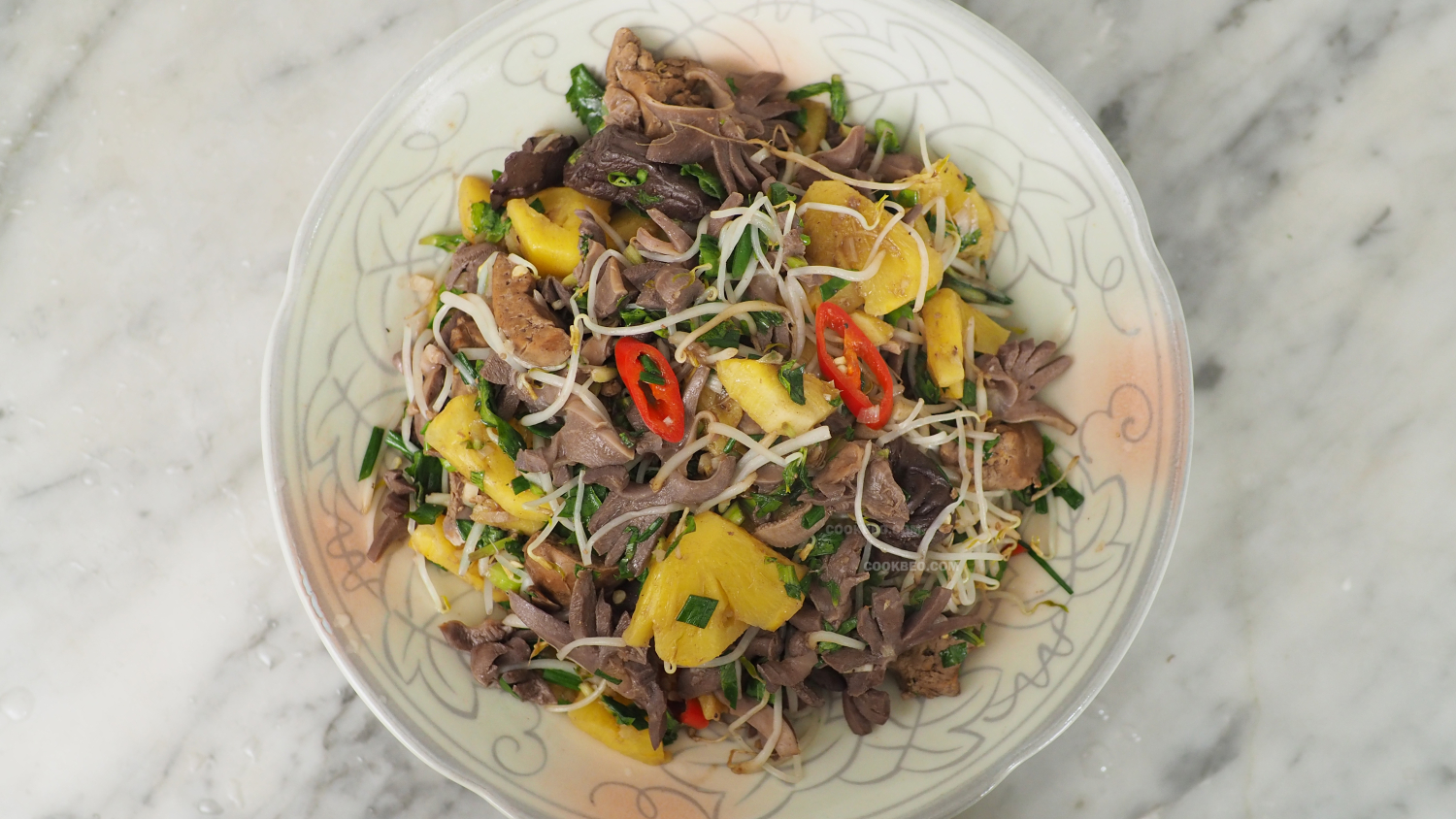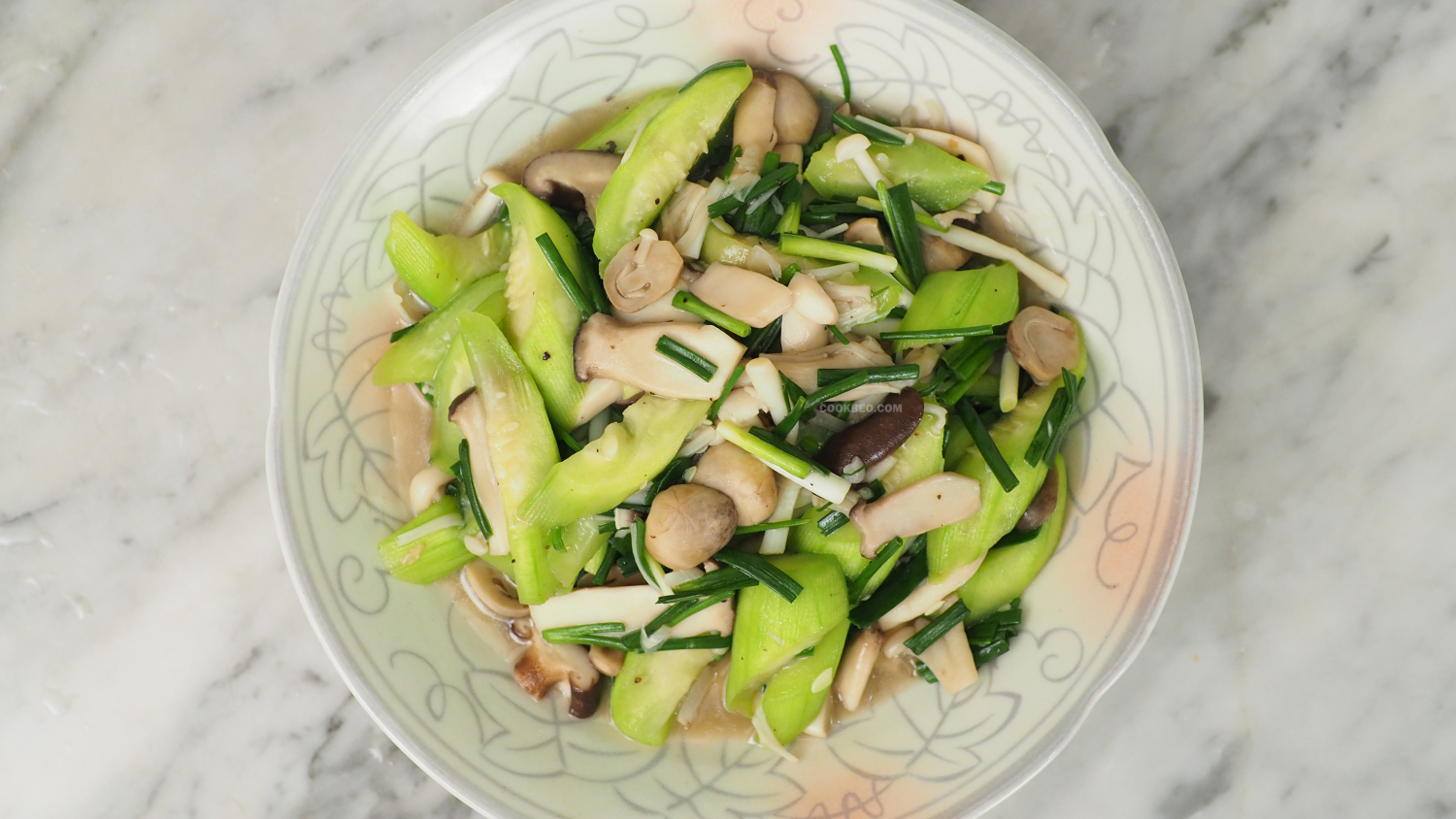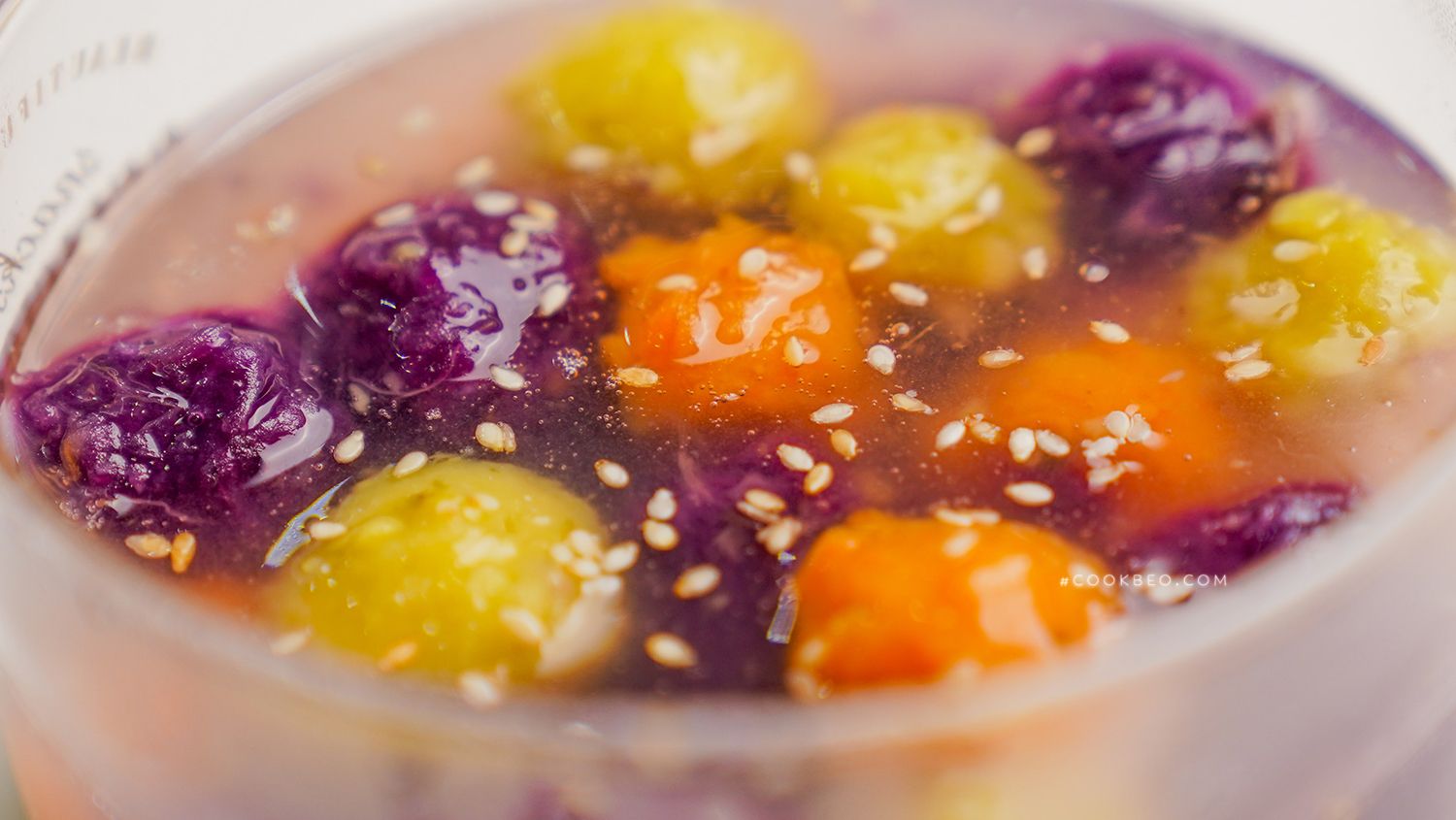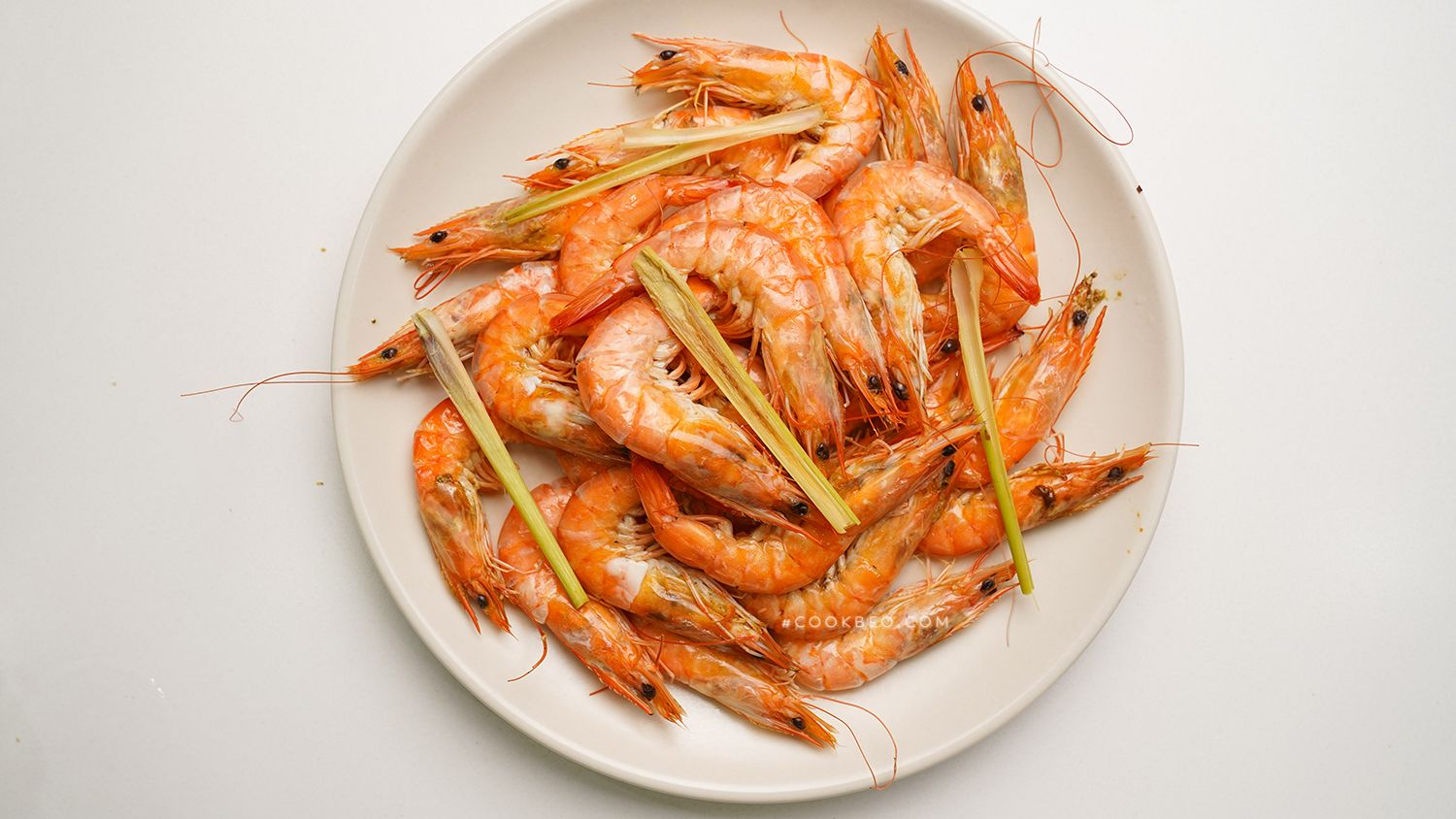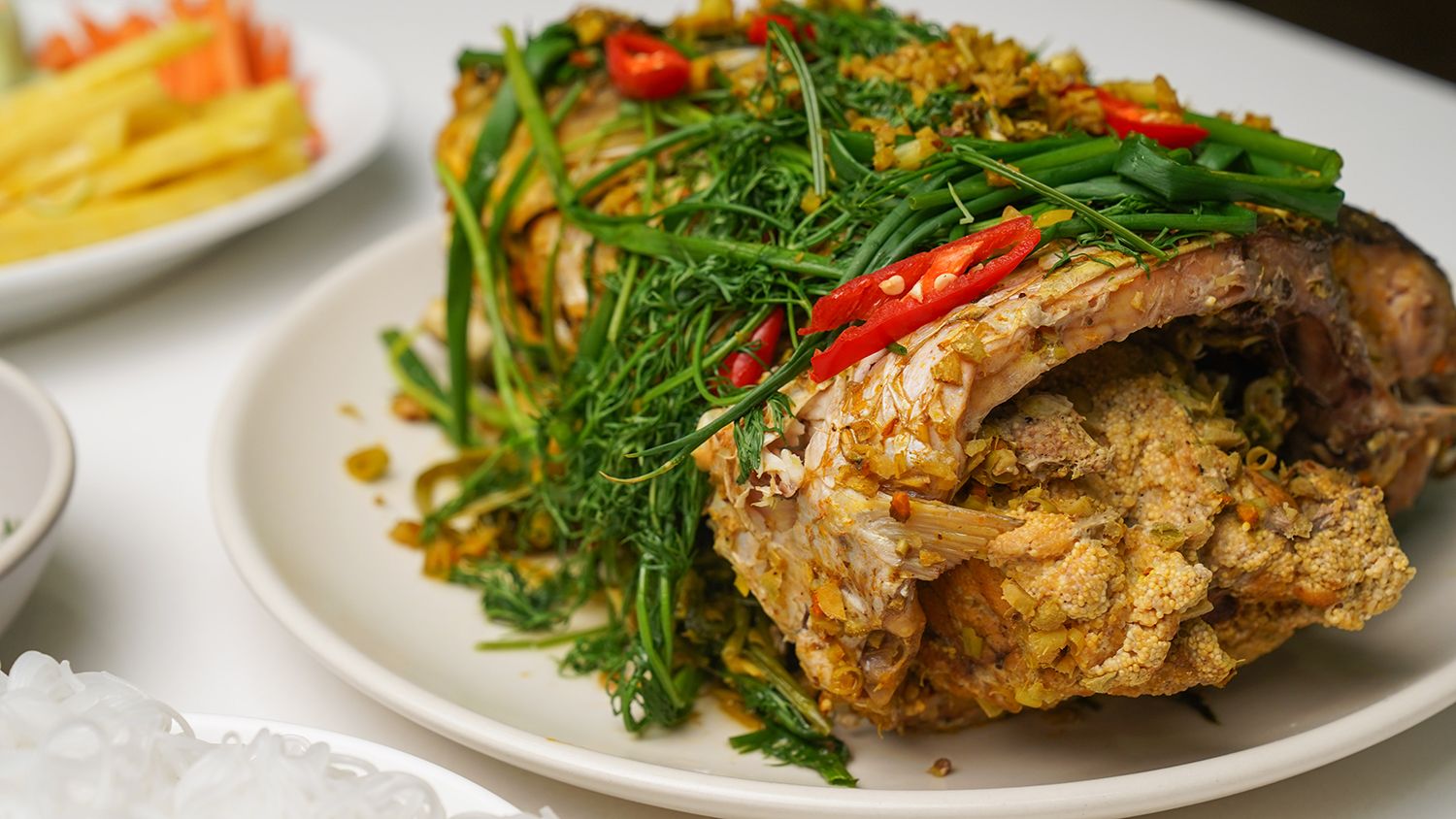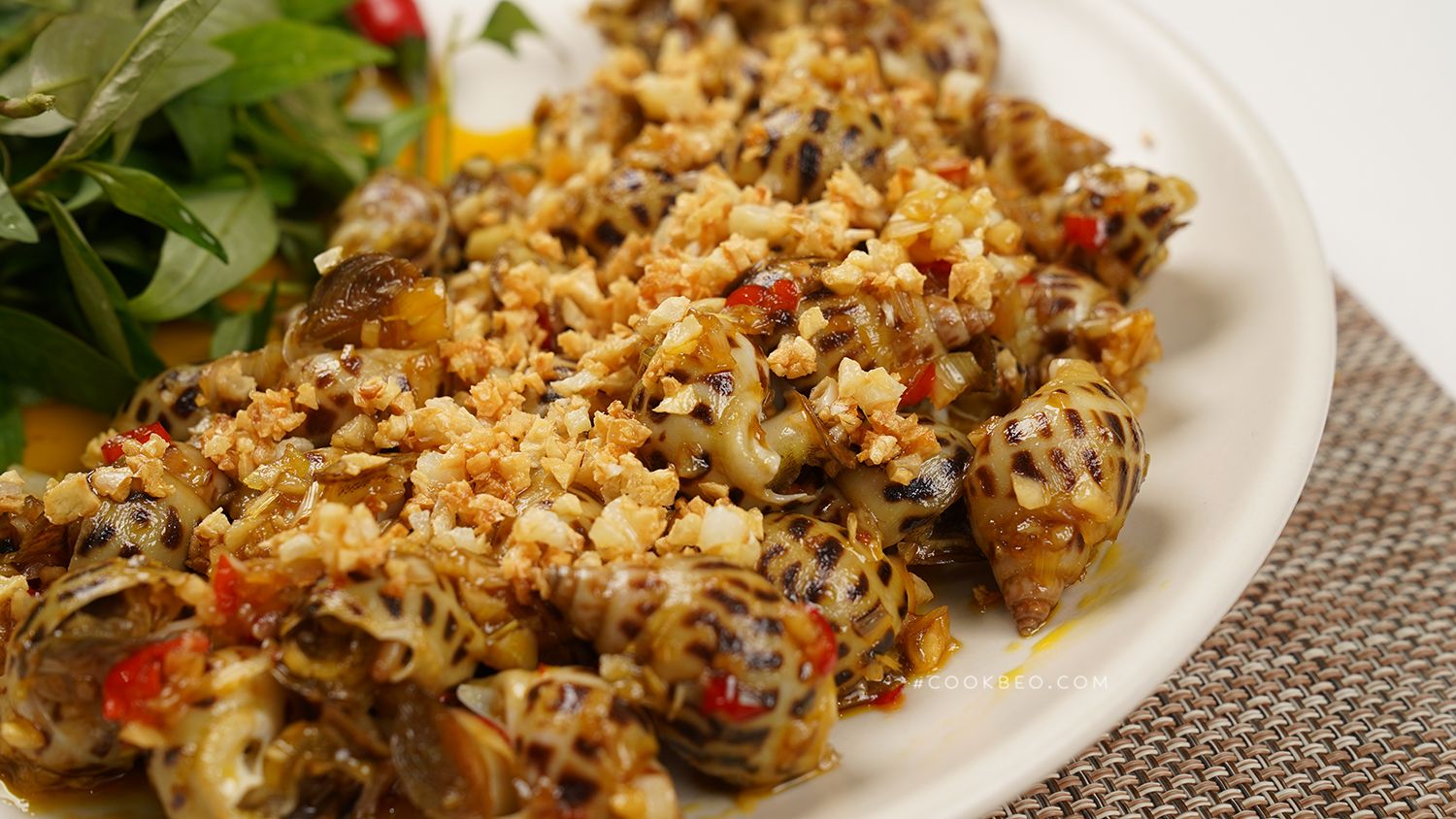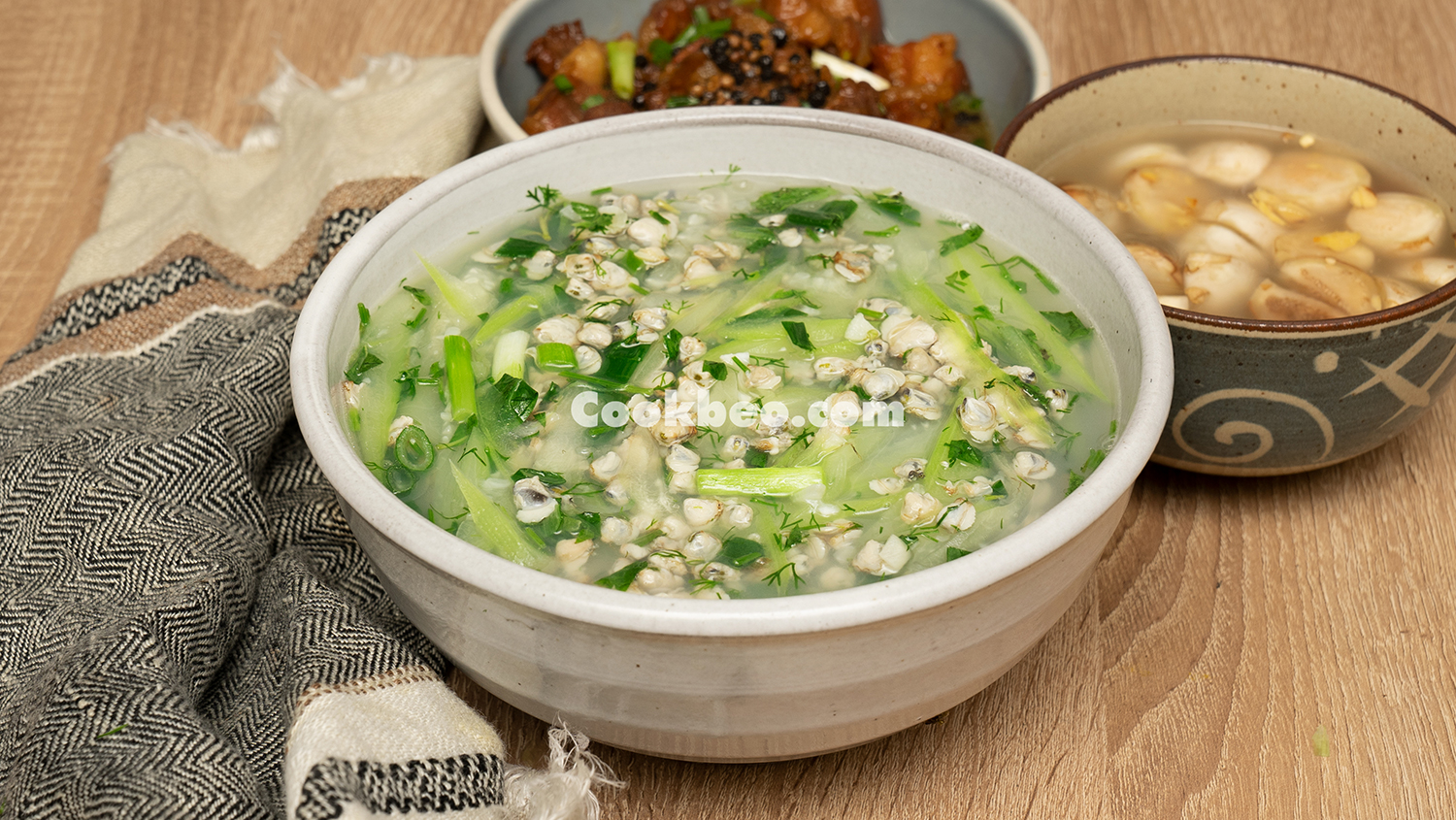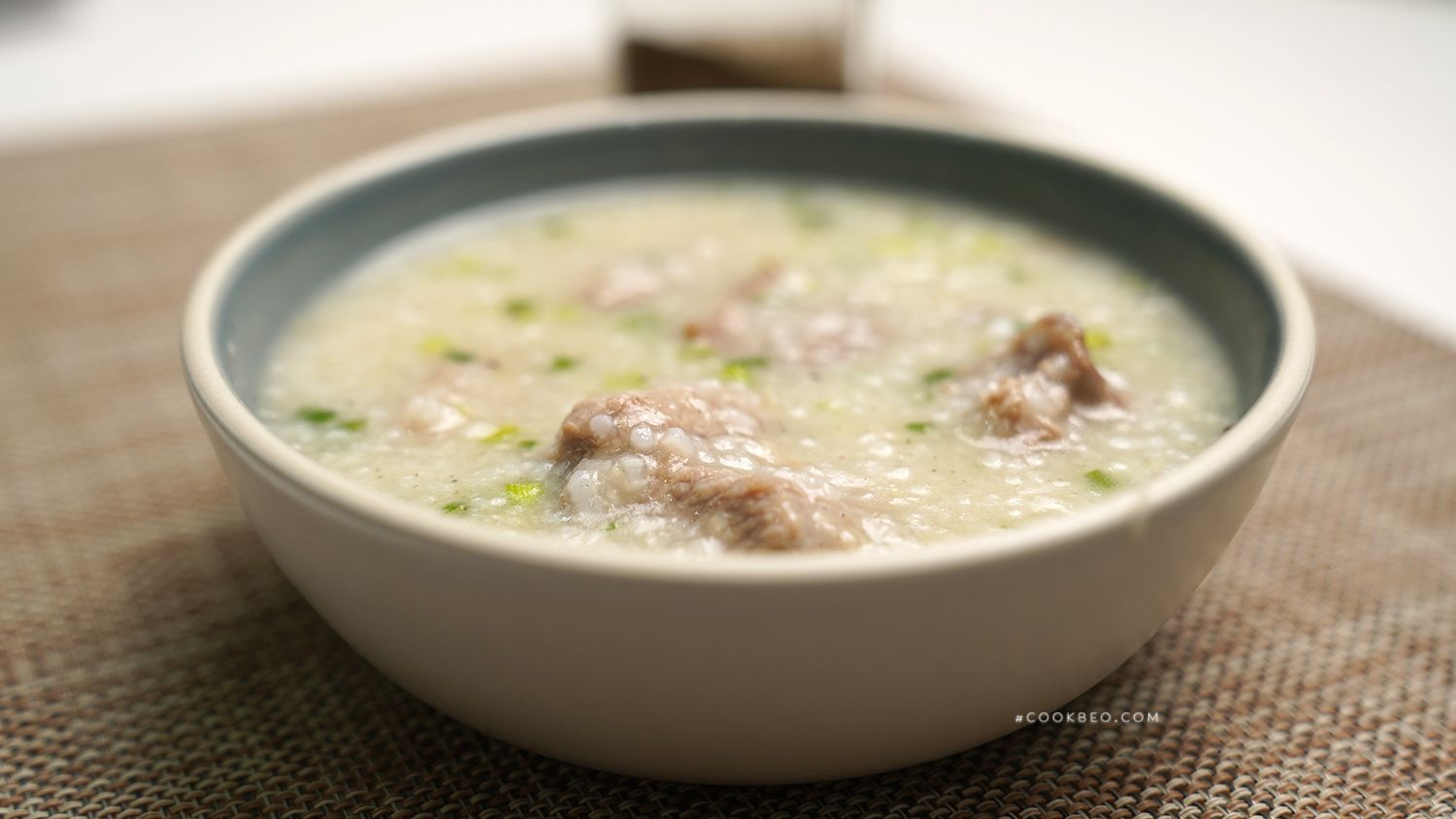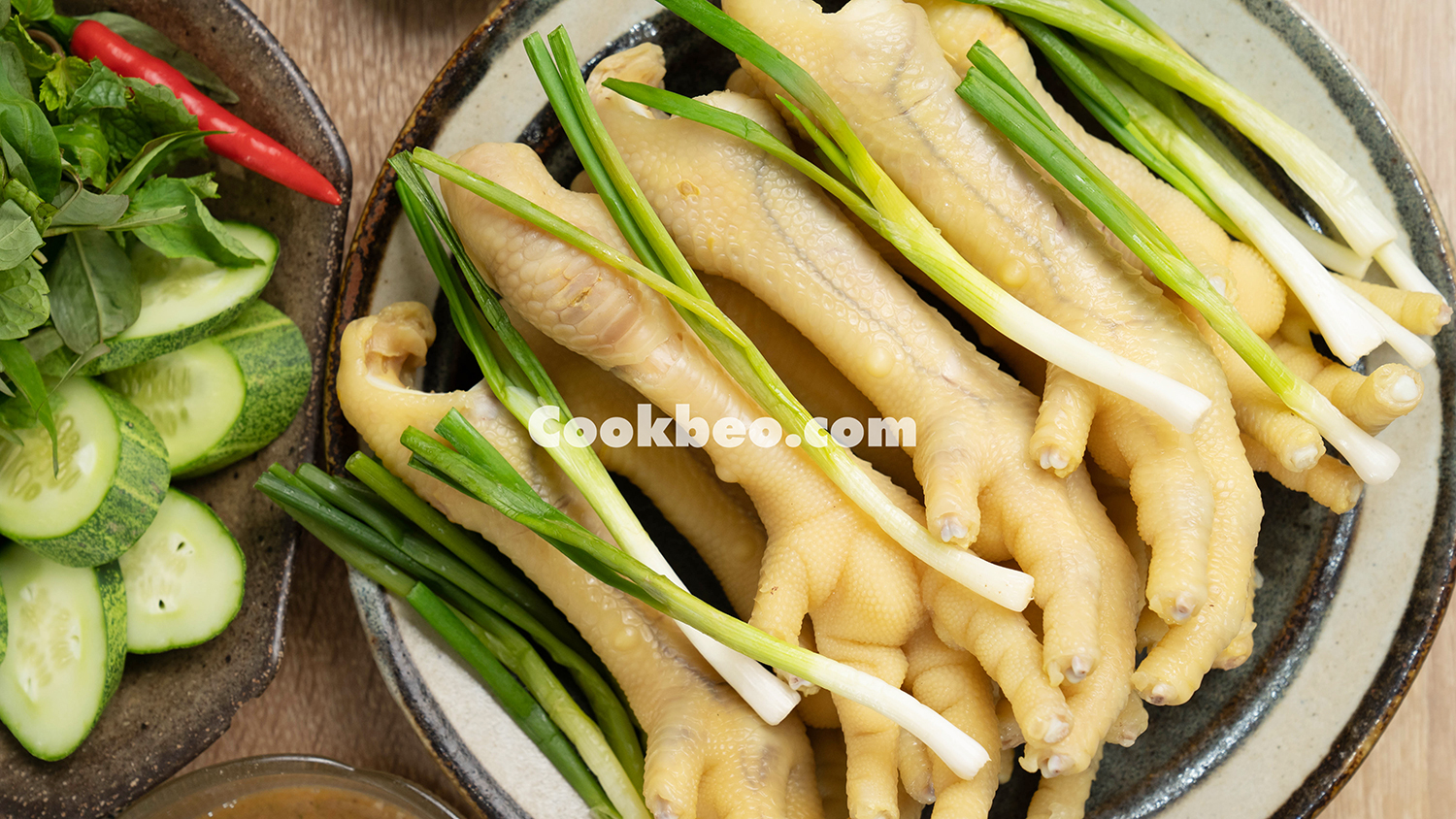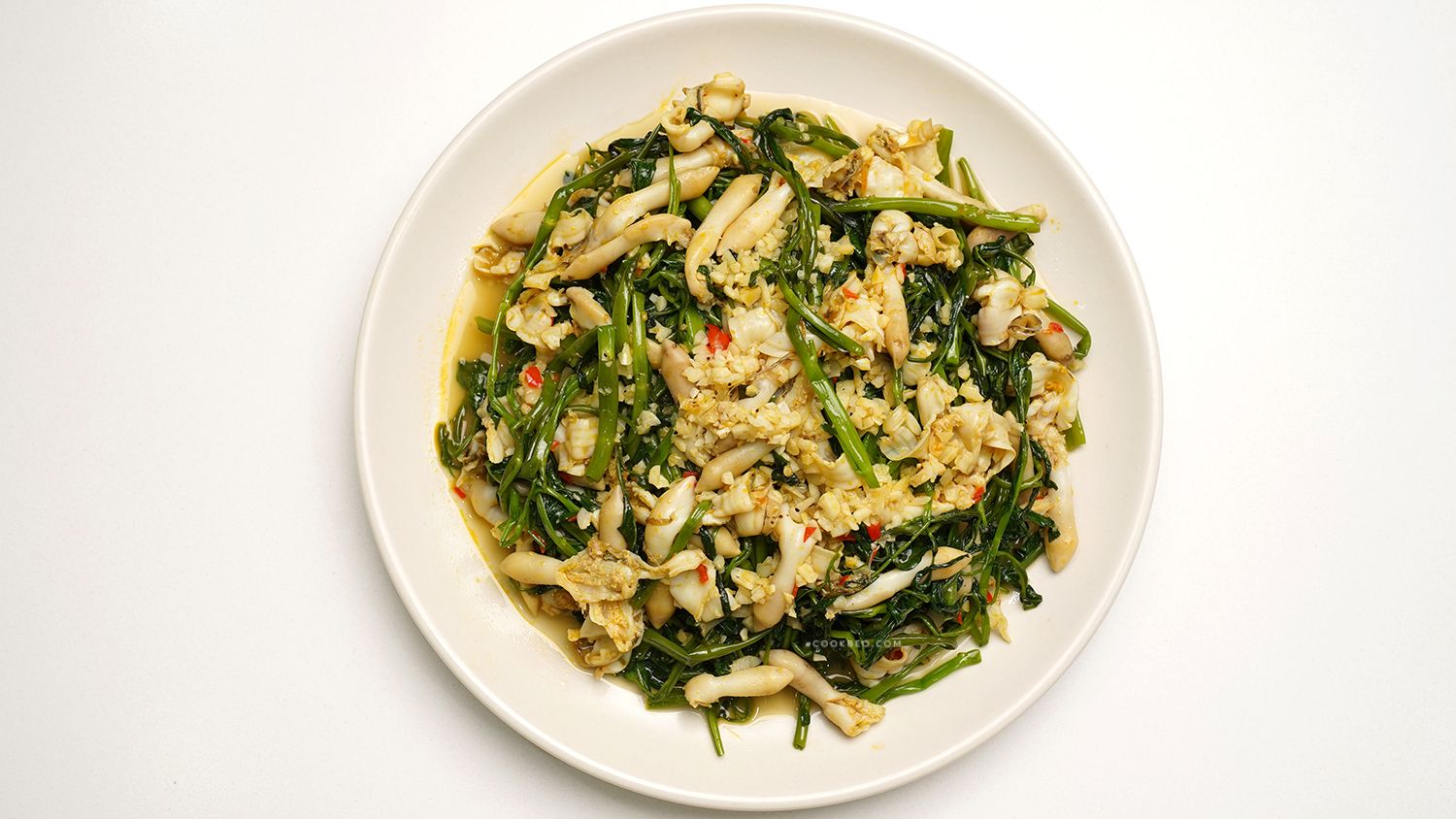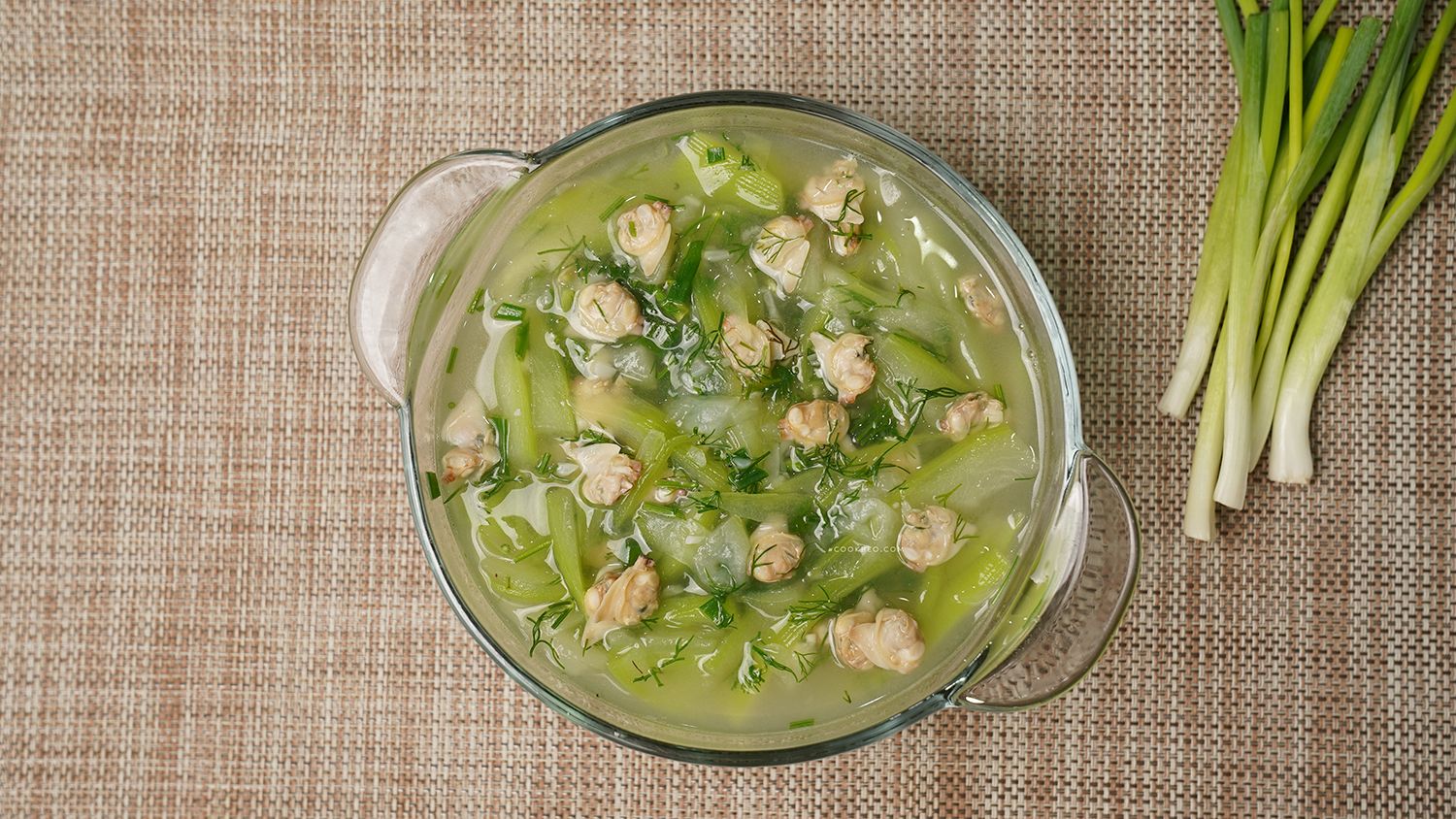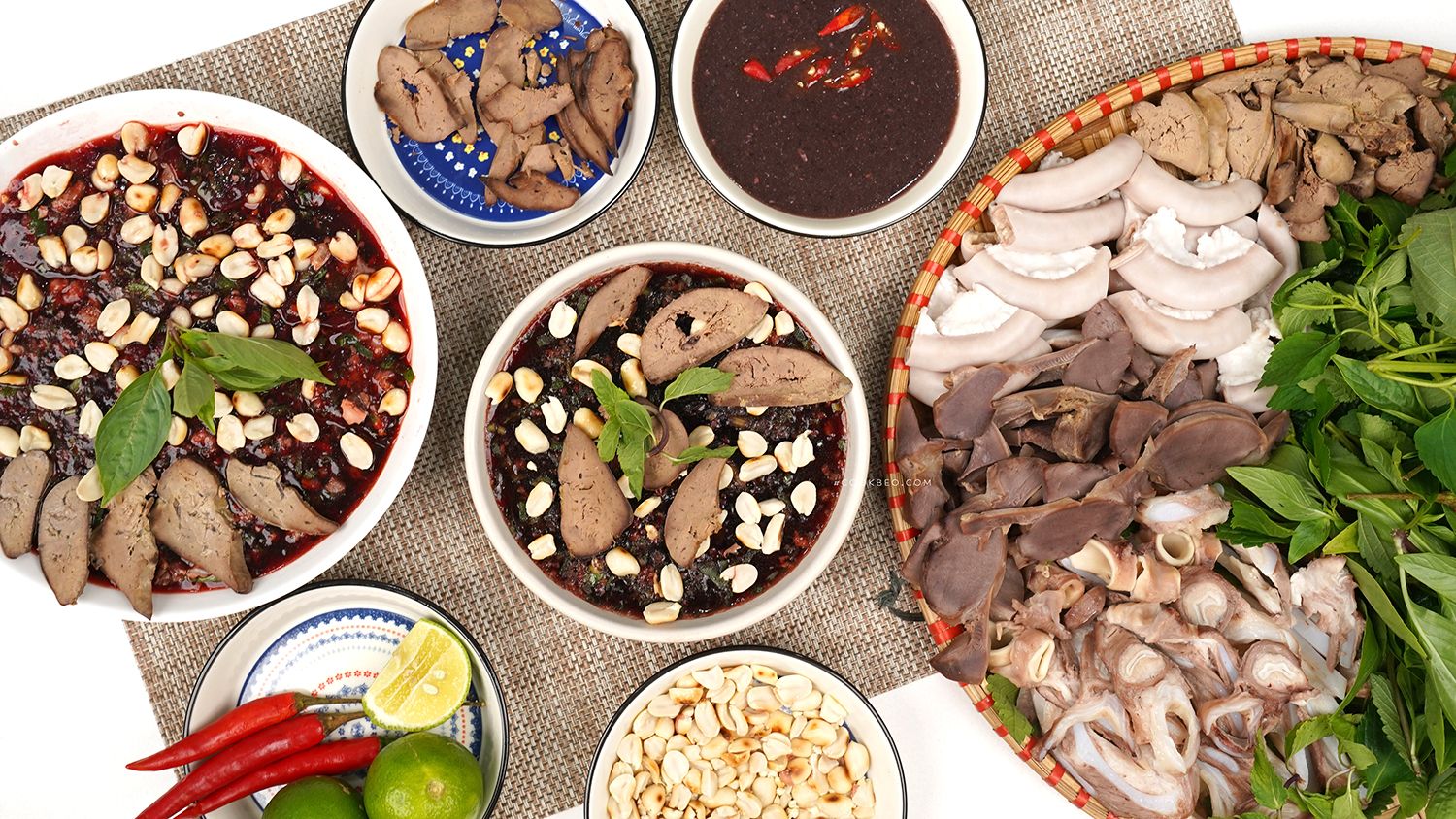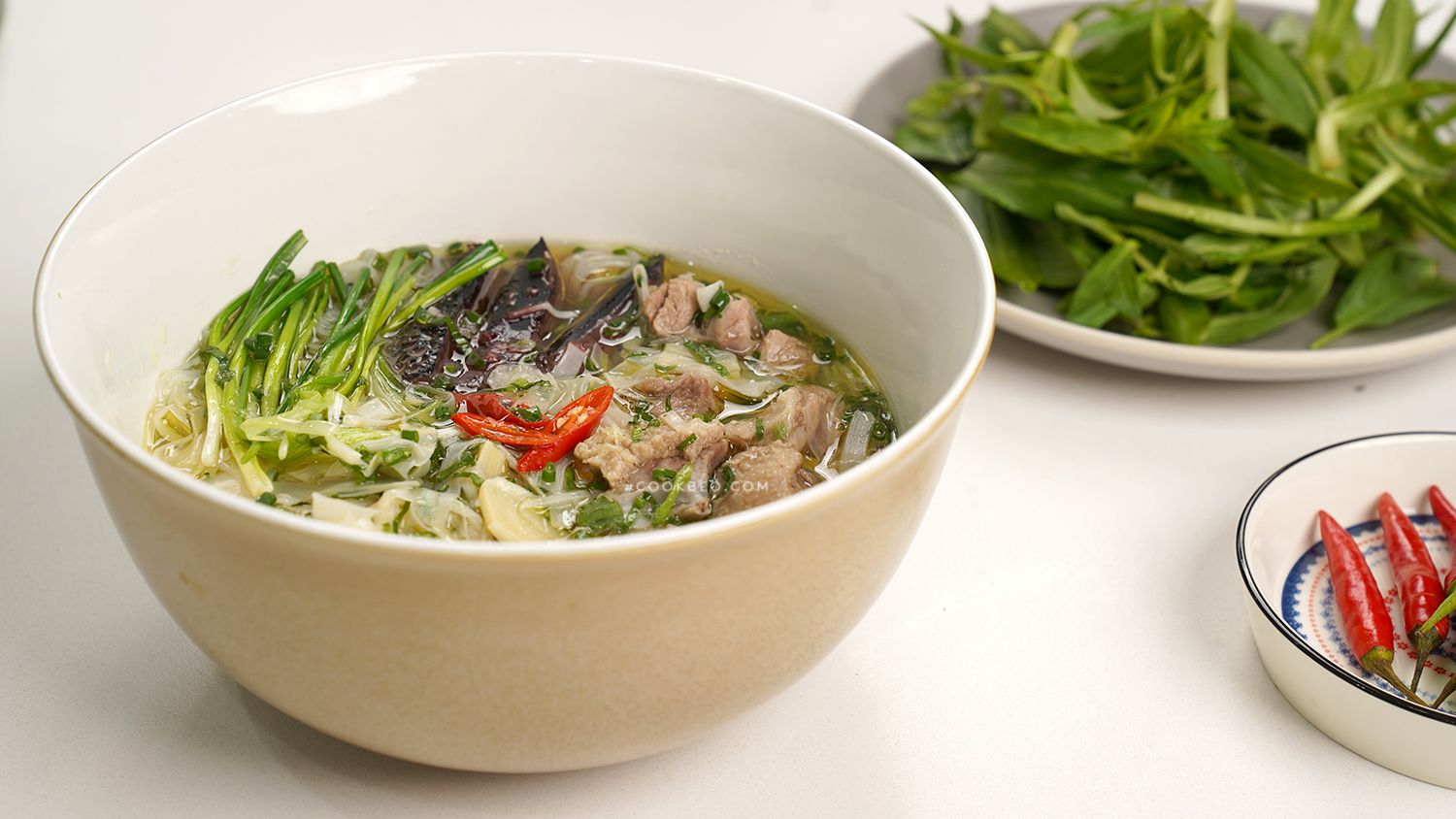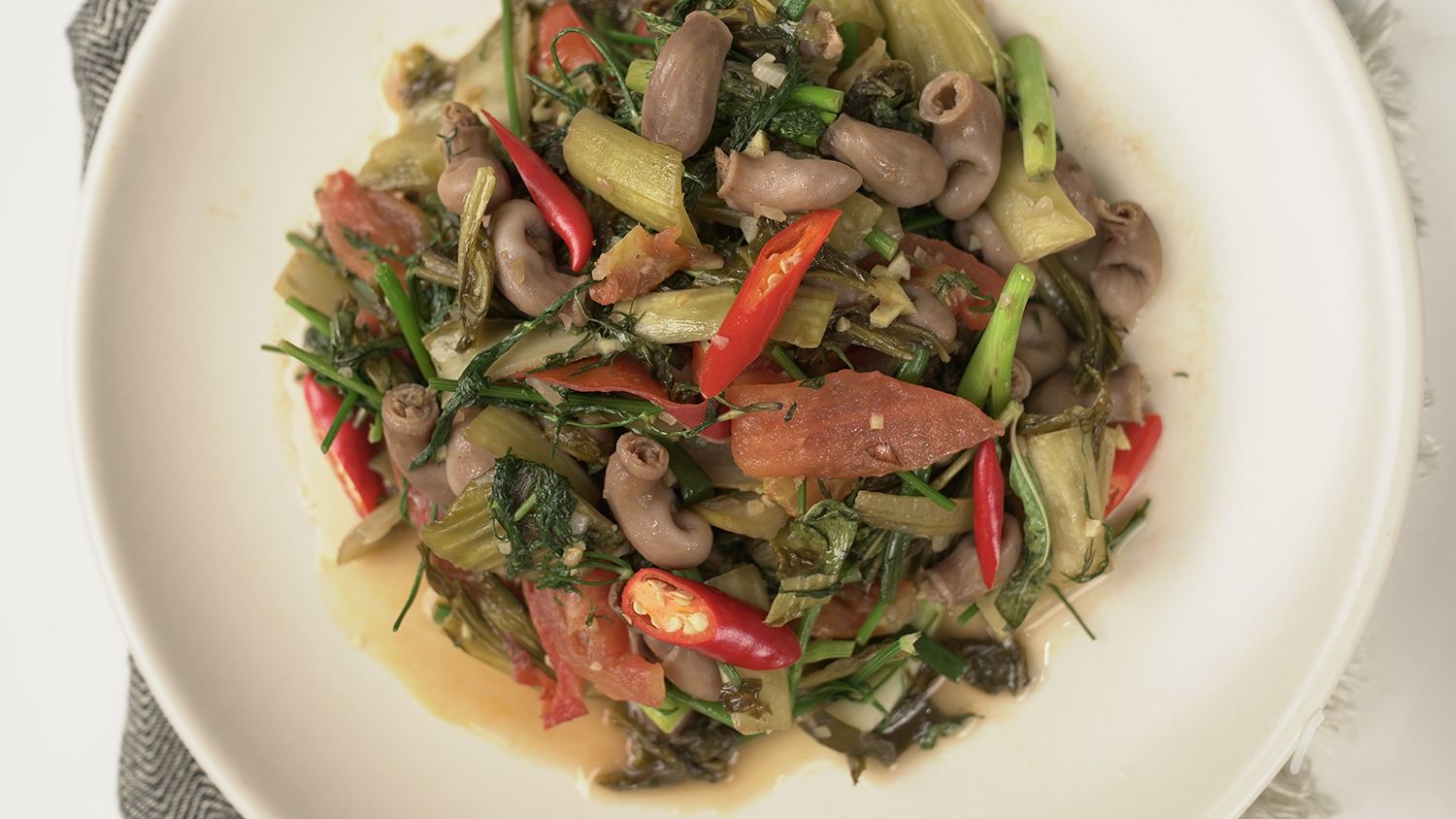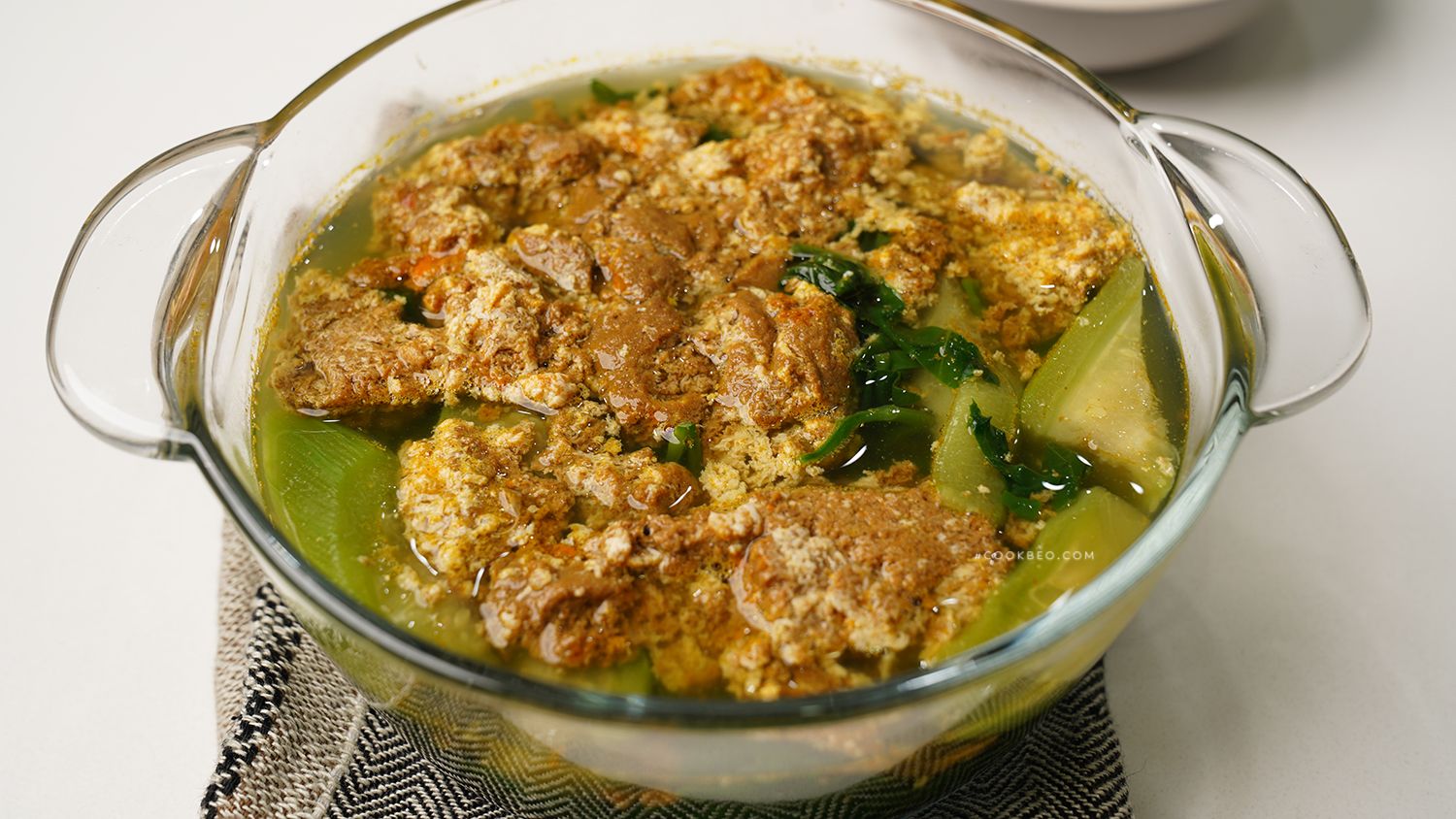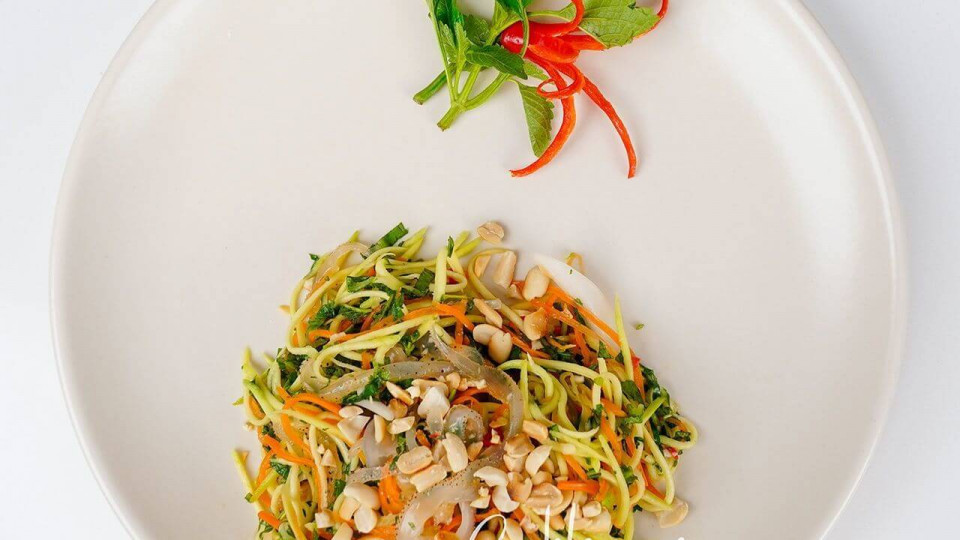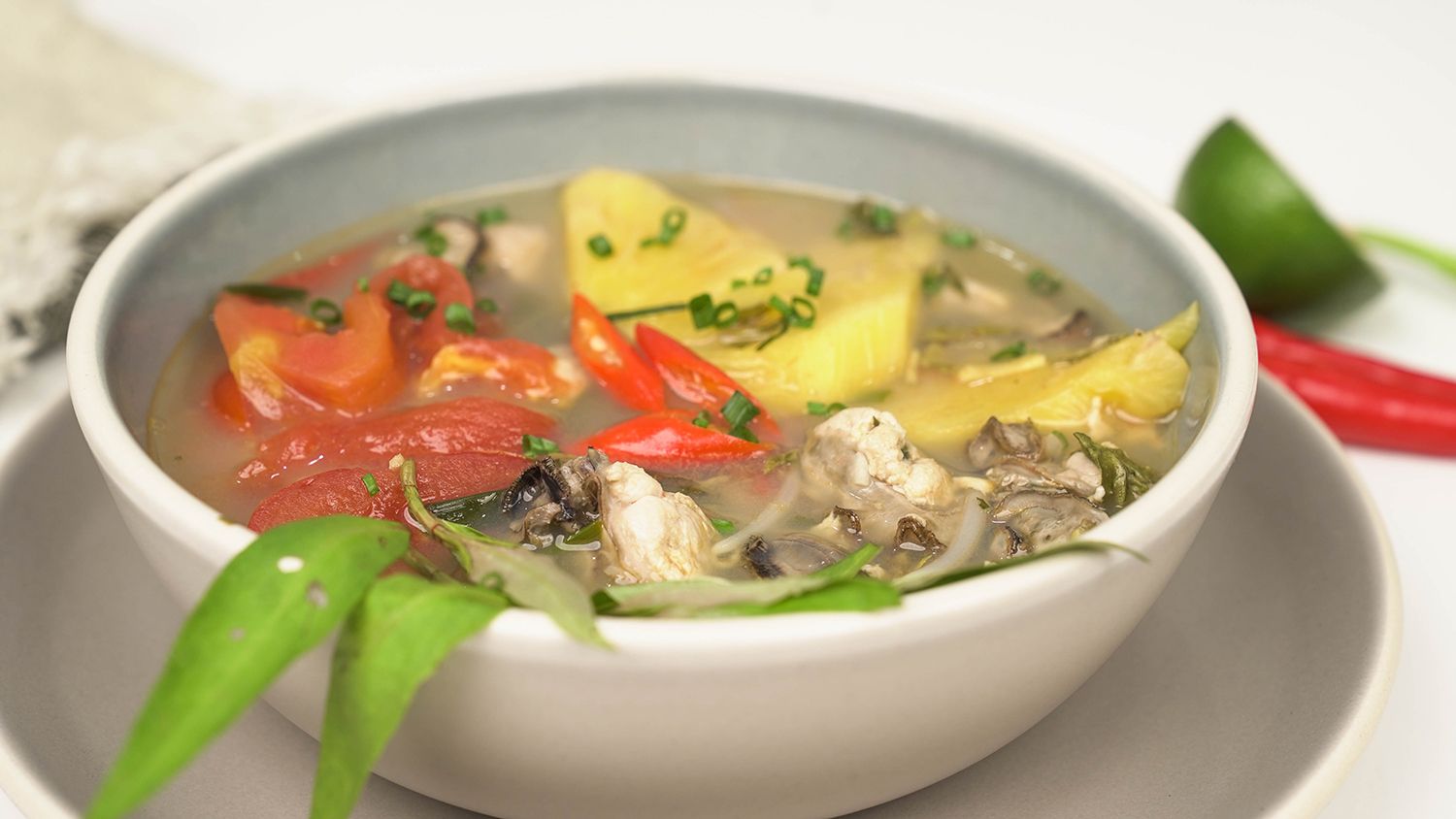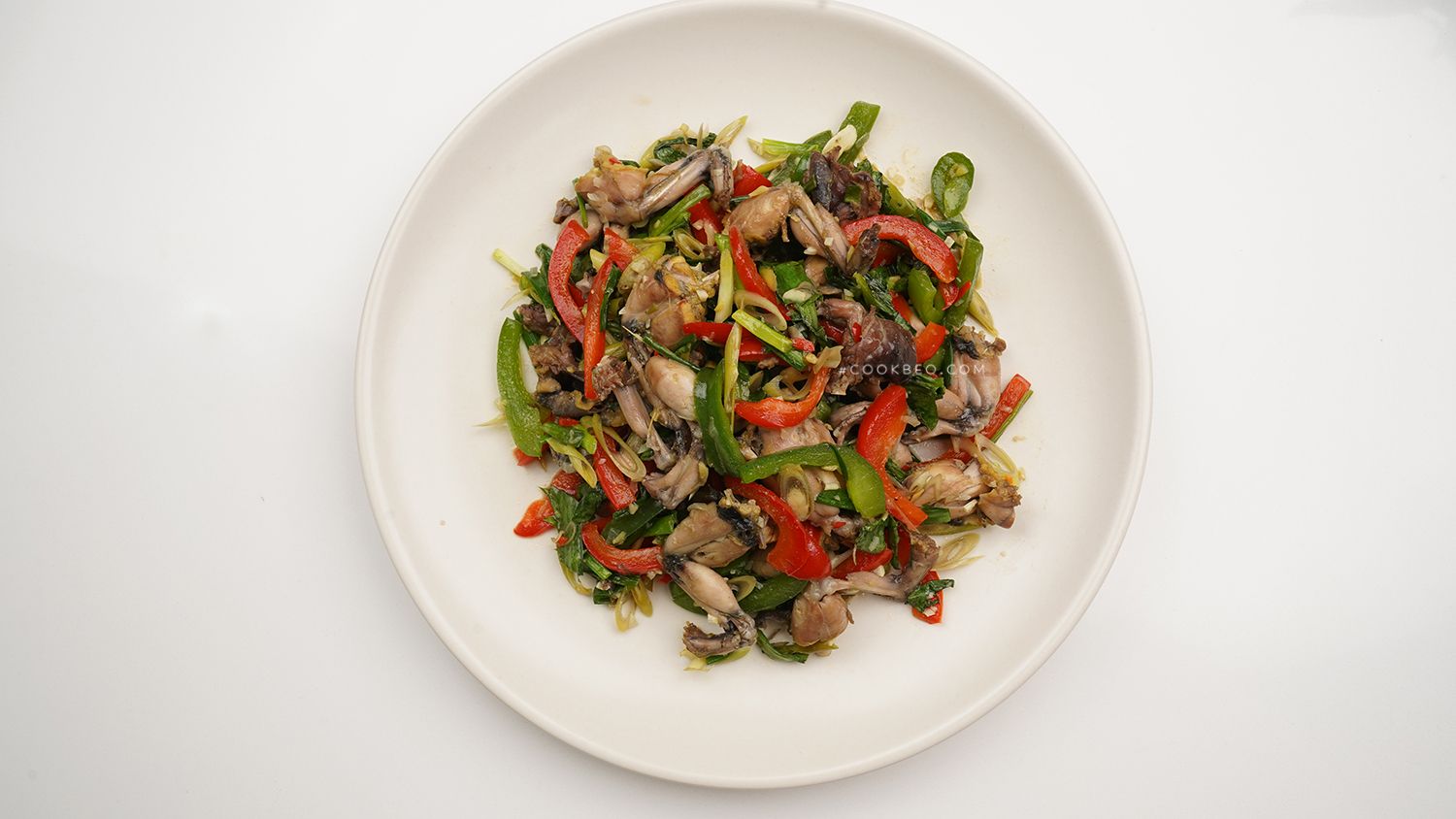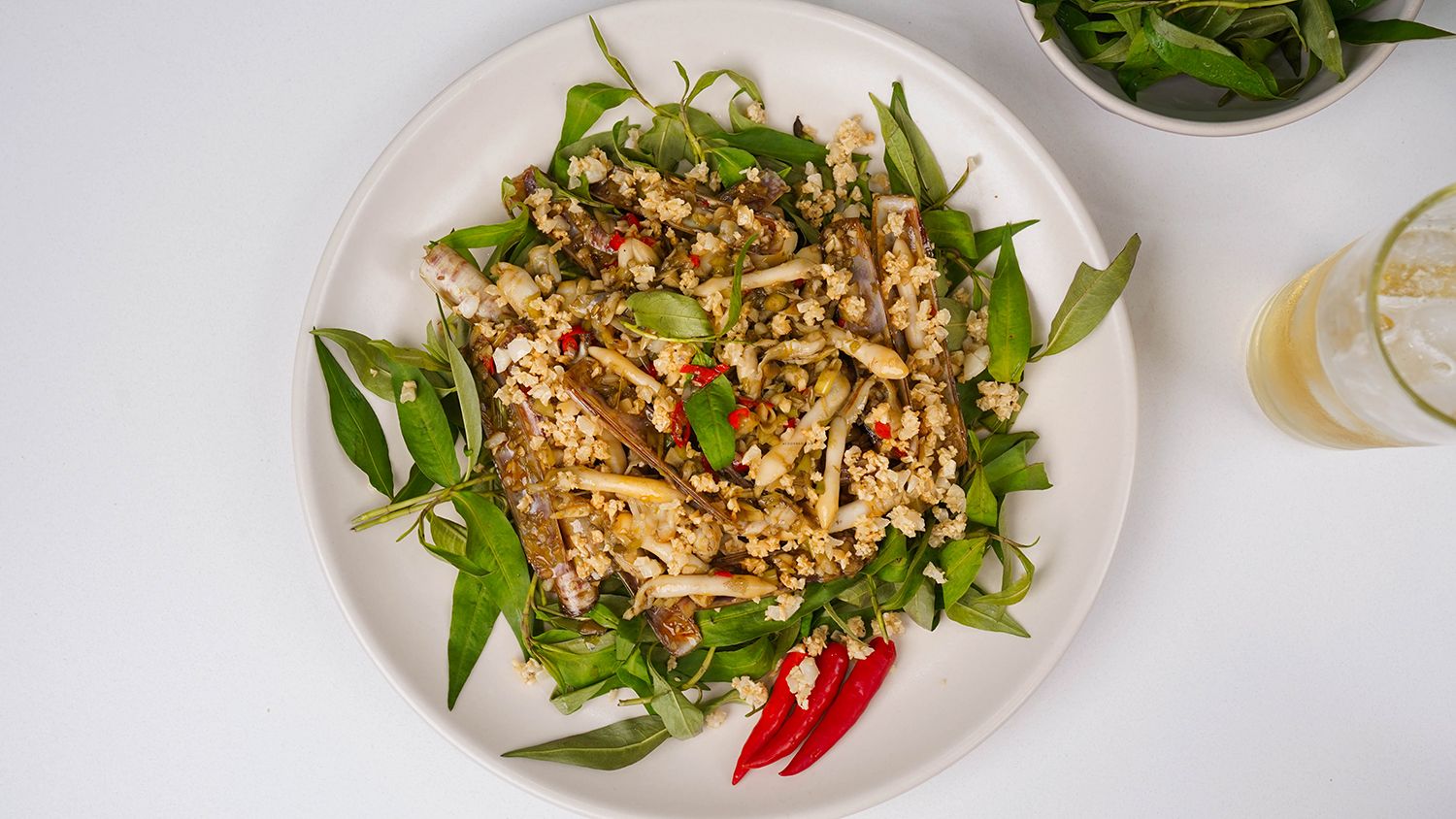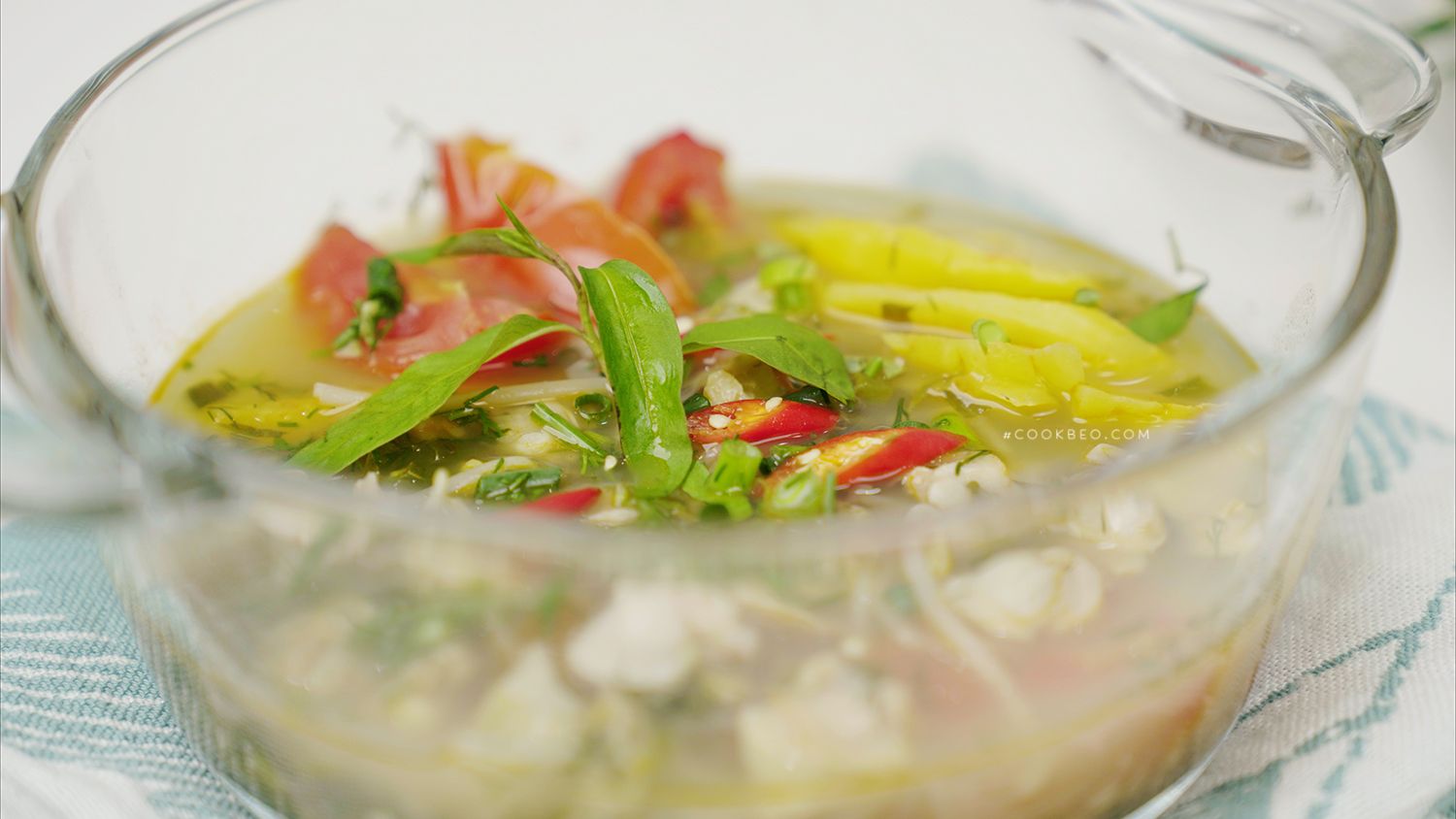How to Make the Best Northern-Style Crab Noodle Soup
This detailed guide shows how to make Northern-style crab noodle soup (Bún Riêu Cua) at home, with a sweet, tangy, and flavorful broth that rivals any restaurant. It's perfect for a weekend meal to change things up from your usual rice dishes.
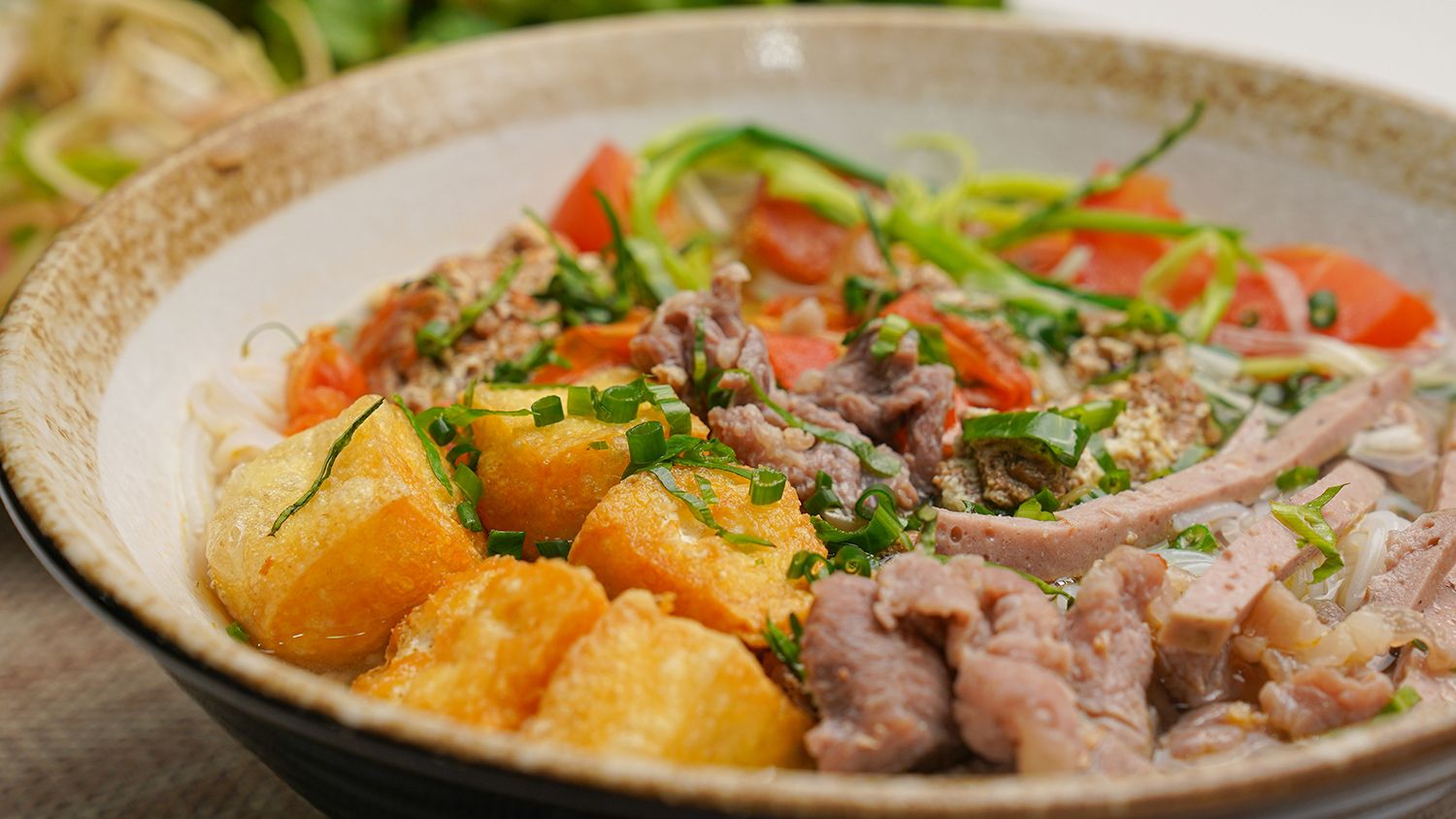
Ingredients
- 350g ground freshwater crab meat
- 2 pieces of tofu
- 150g pork sausage
- 200g beef
- 5-6 tomatoes
- 100ml rice vinegar or fermented rice
- 30g scallions
- 25g cilantro
- 40g shallots
- 1kg rice noodles
- Lettuce
- Frisée
- Vietnamese balm
- Mint
- Coriander
- Taro stem
- Fresh chili
- Lime
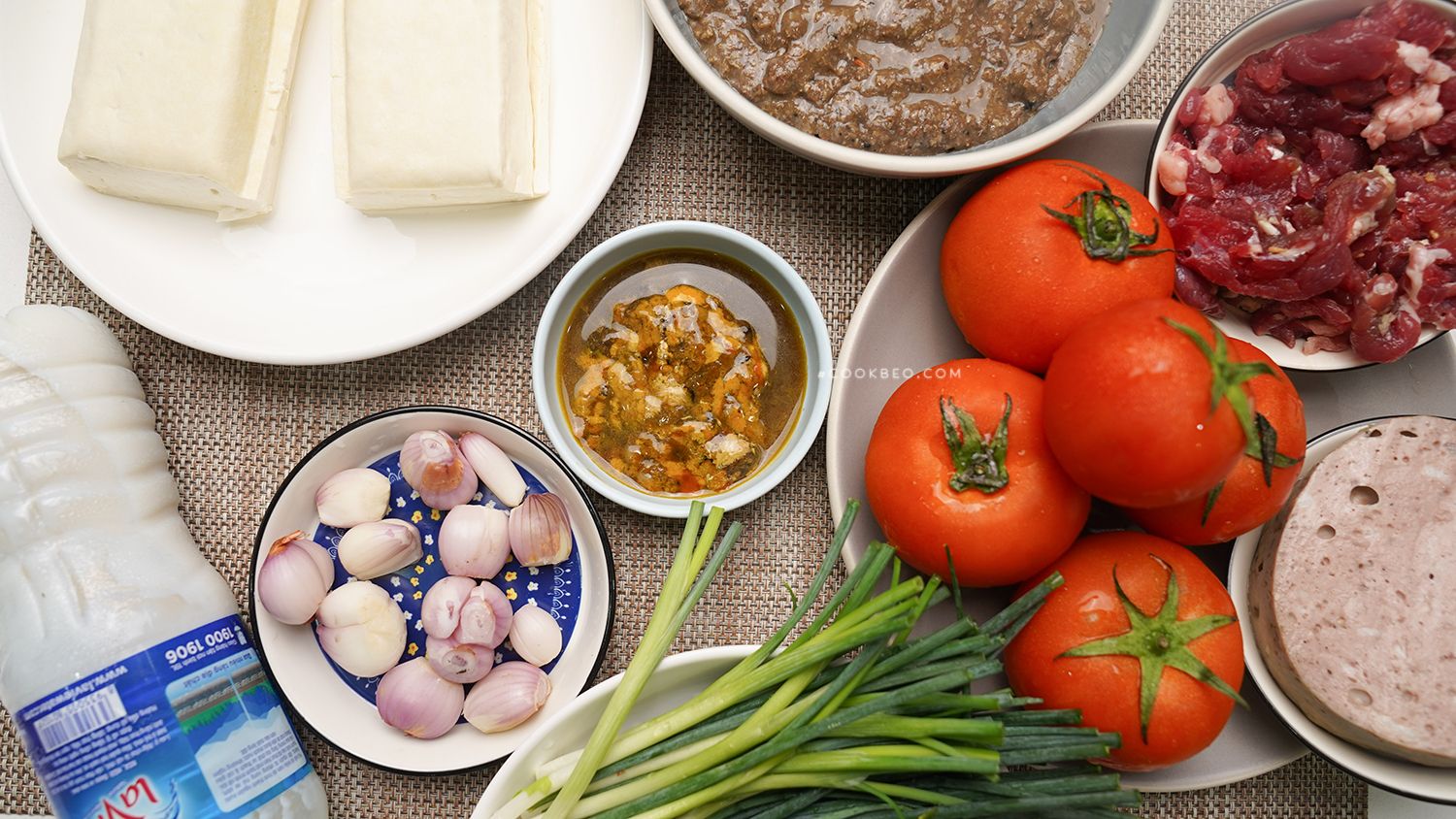
Instructions
Prepare Ingredients
If you buy the crabs at the market, you can ask the seller to clean and grind the crabs for you. To ensure cleanliness, remind the seller to wash the crabs thoroughly before grinding.
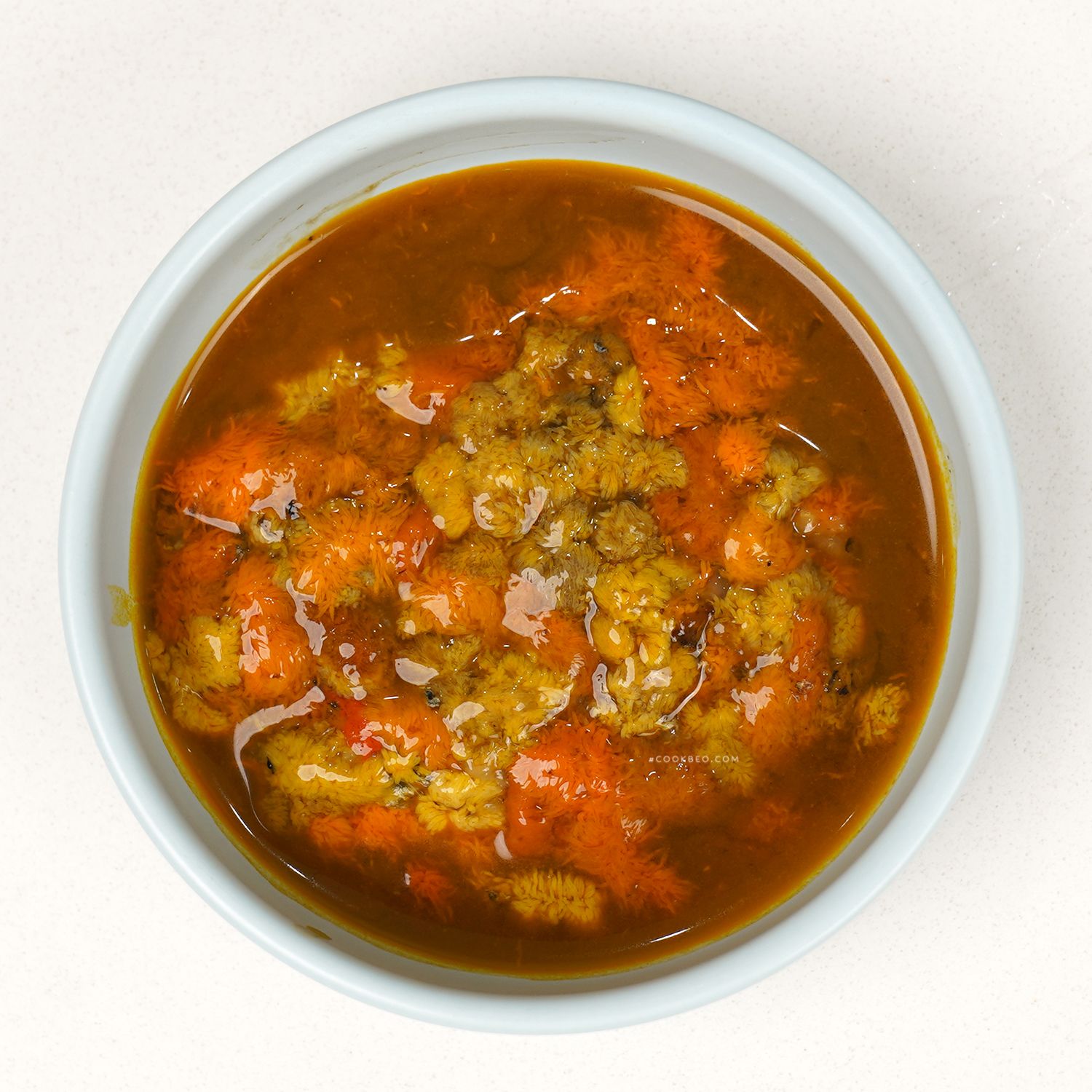
Place the ground crab meat into a pot, add filtered water, and use your hands to gently squeeze and stir to separate the crab meat from the shell. Then strain the crab liquid into a separate bowl. Avoid using a sieve, as the crab meat may get caught in it.
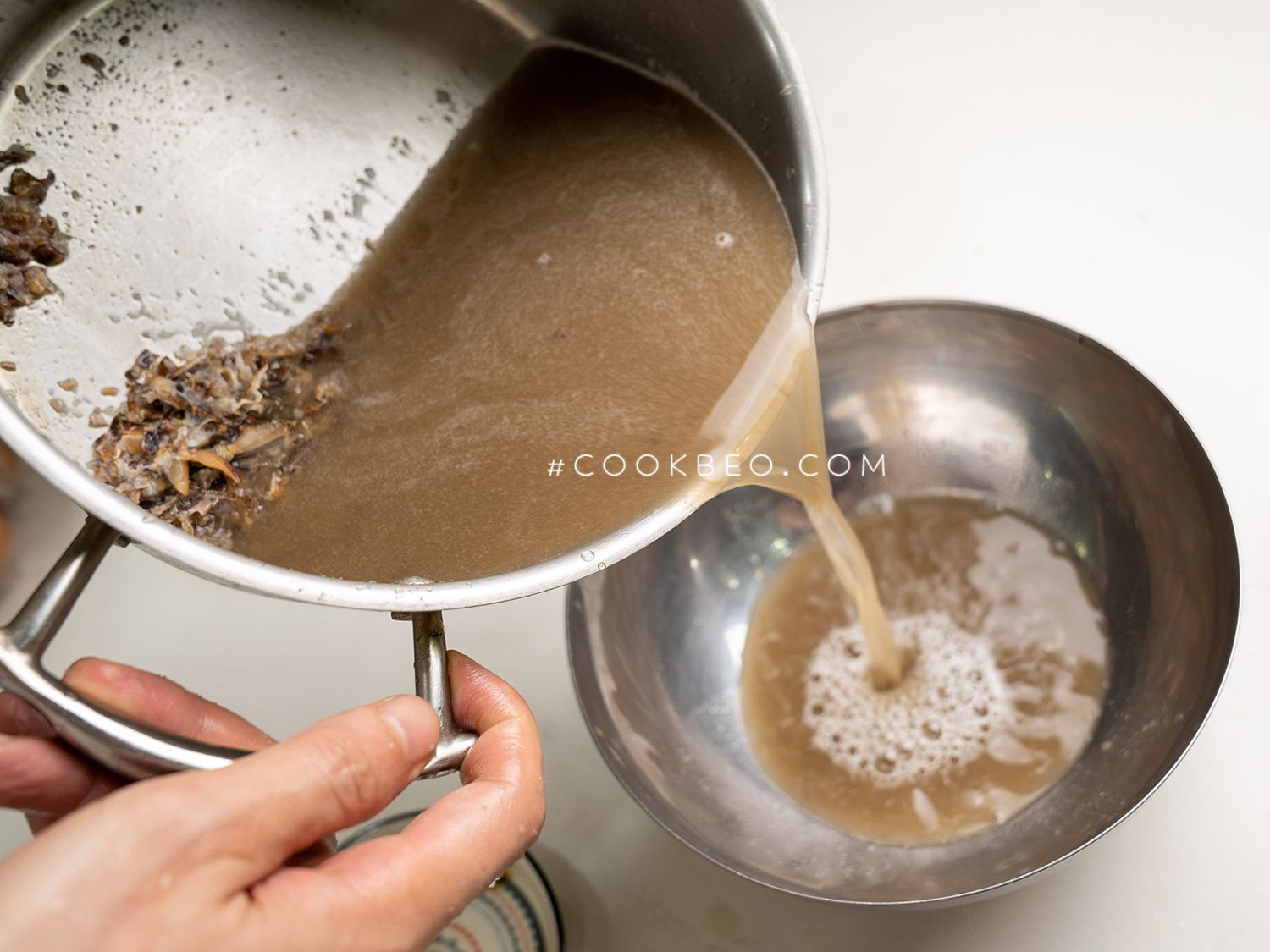
Rinse the tofu, cut it into small square pieces, and let it drain before frying until golden brown. Set aside.
Wash the tomatoes and cut them into wedges.
Marinate the beef with a little sesame oil and sugar to tenderize the meat.
Cut the pork sausage into thin strips and set aside in a bowl.
Wash the scallions and cilantro, then chop finely.
Soak the herbs in diluted saltwater, rinse, and let them drain. For lettuce, chop it into smaller pieces.
Peel and slice the shallots thinly.
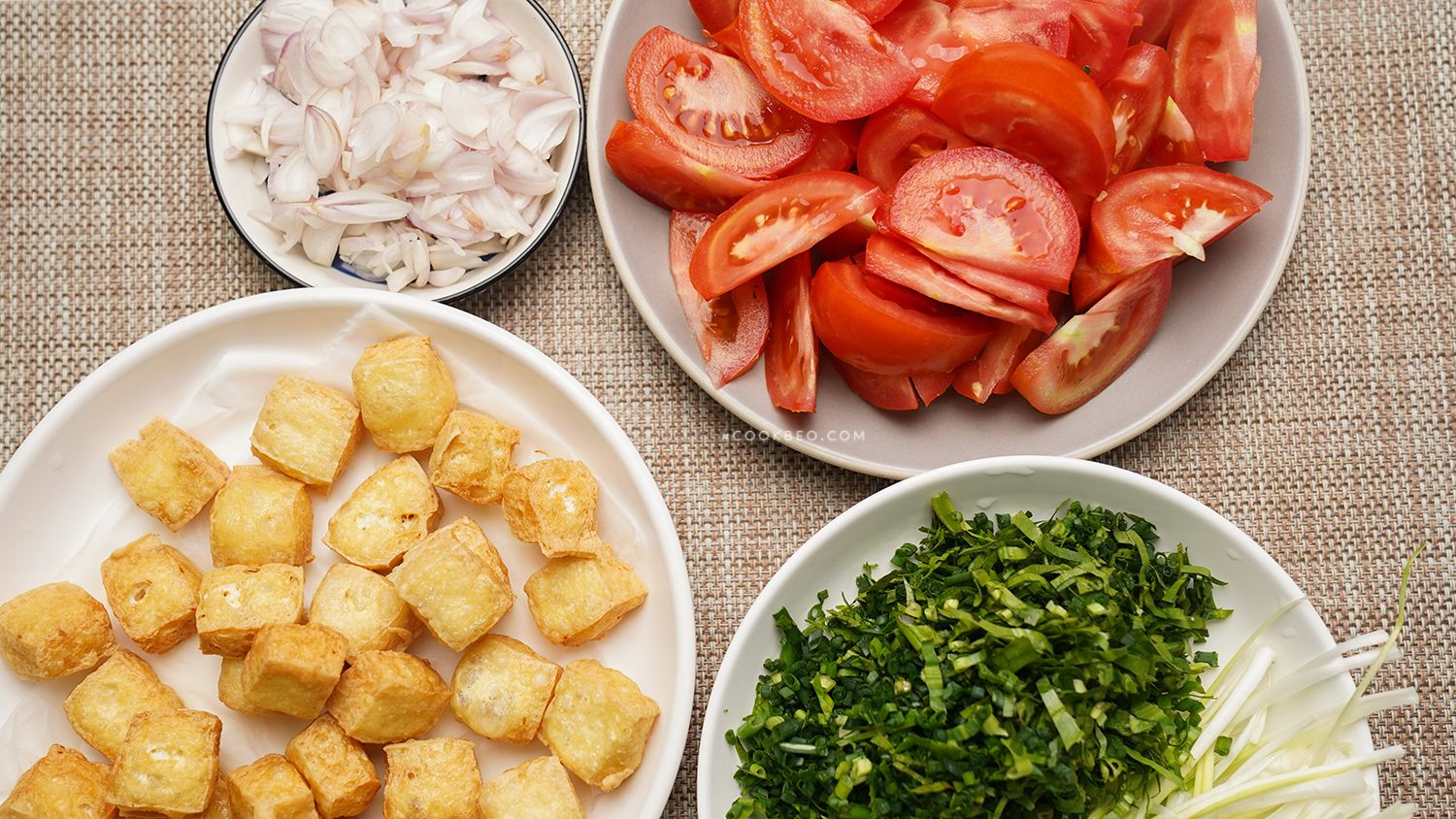
Cook the Broth
Add 1 teaspoon of seasoning powder and 1 teaspoon of MSG to the crab liquid, then gently stir in a clockwise direction before placing it on the stove to cook. Use about 2.5 liters of water for serving four people.
Keep the heat moderate so the crab meat forms into cakes without boiling over. Once the crab meat rises to the surface in cakes, cover the pot and reduce the heat, letting it simmer for 1-2 minutes to cook through. Then, use a ladle to remove the crab cakes and set them aside in a bowl.
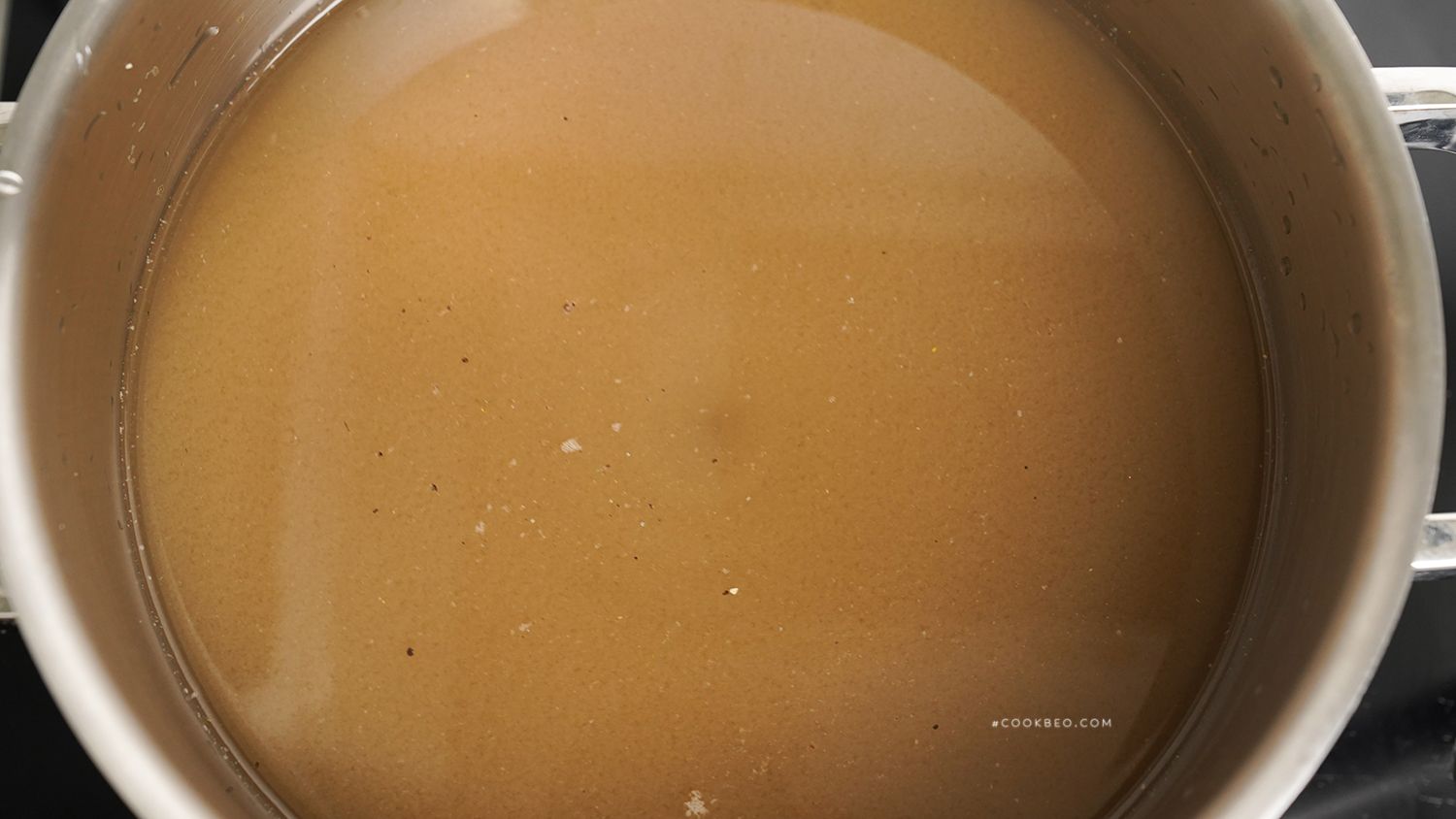
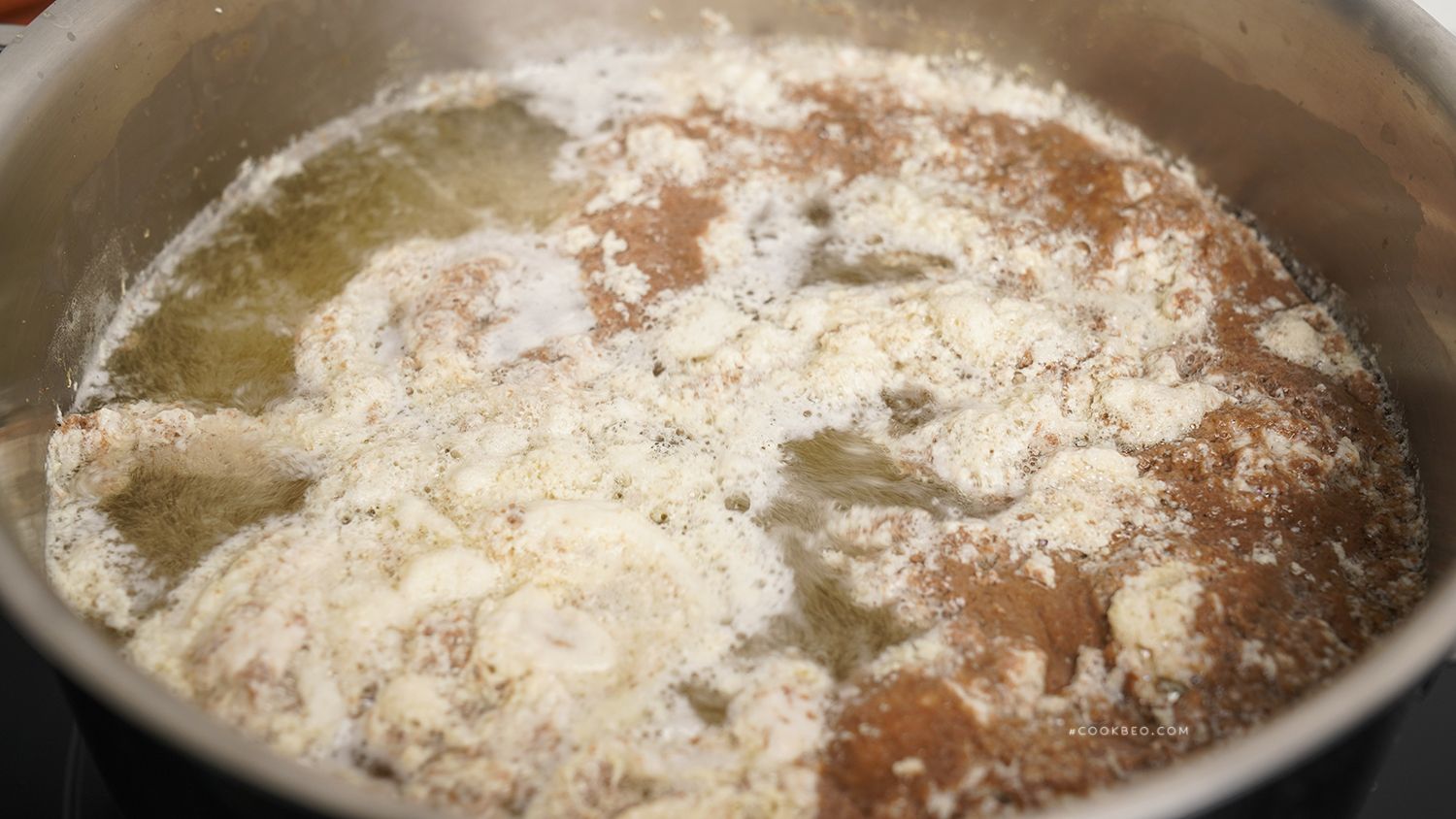

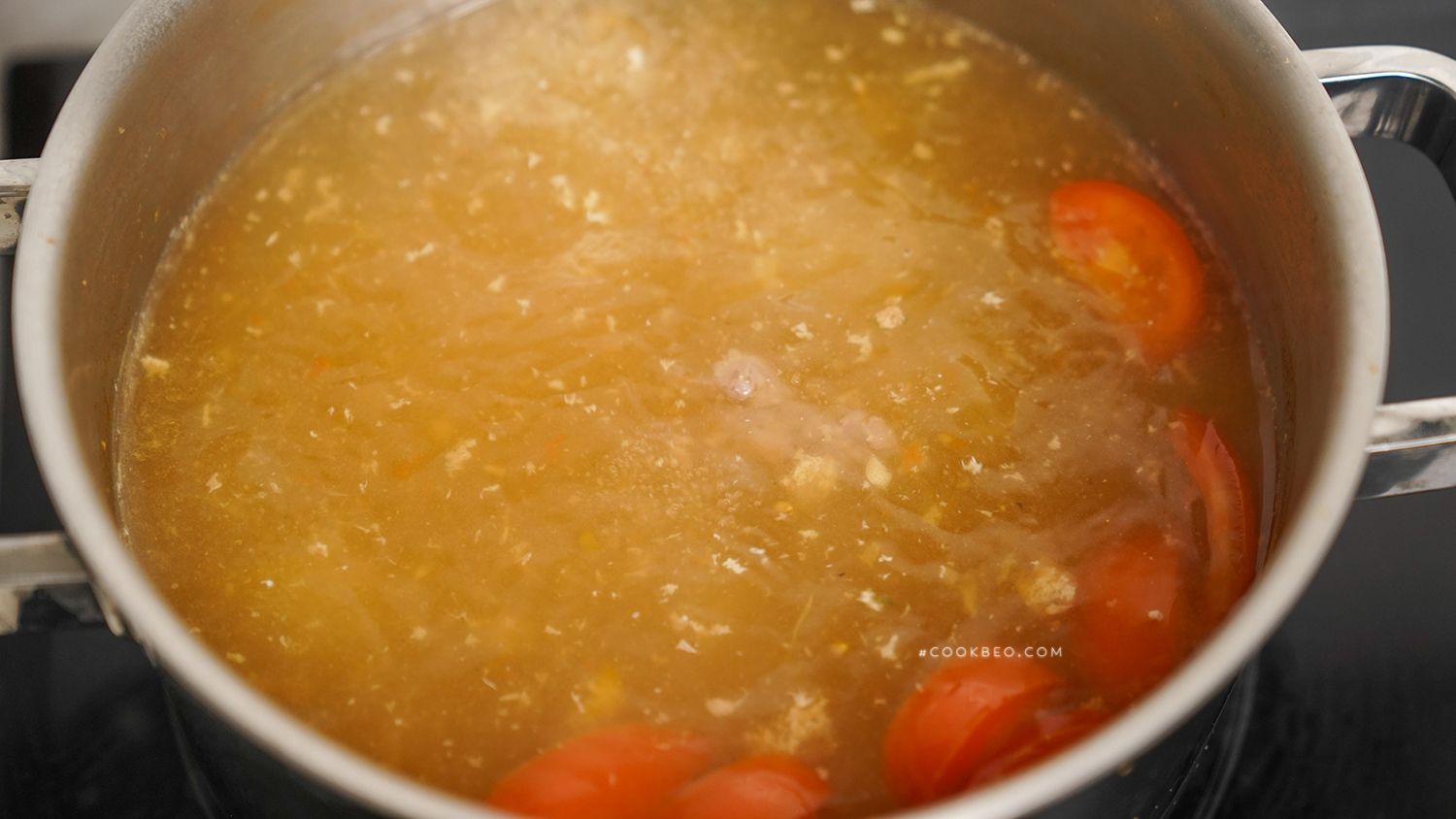
Make Fried Shallots
Add 3-4 tablespoons of cooking oil to a pan, heat the oil, then add the sliced shallots. Fry until the shallots turn golden brown, then remove them from the oil. See how to make fried shallots.
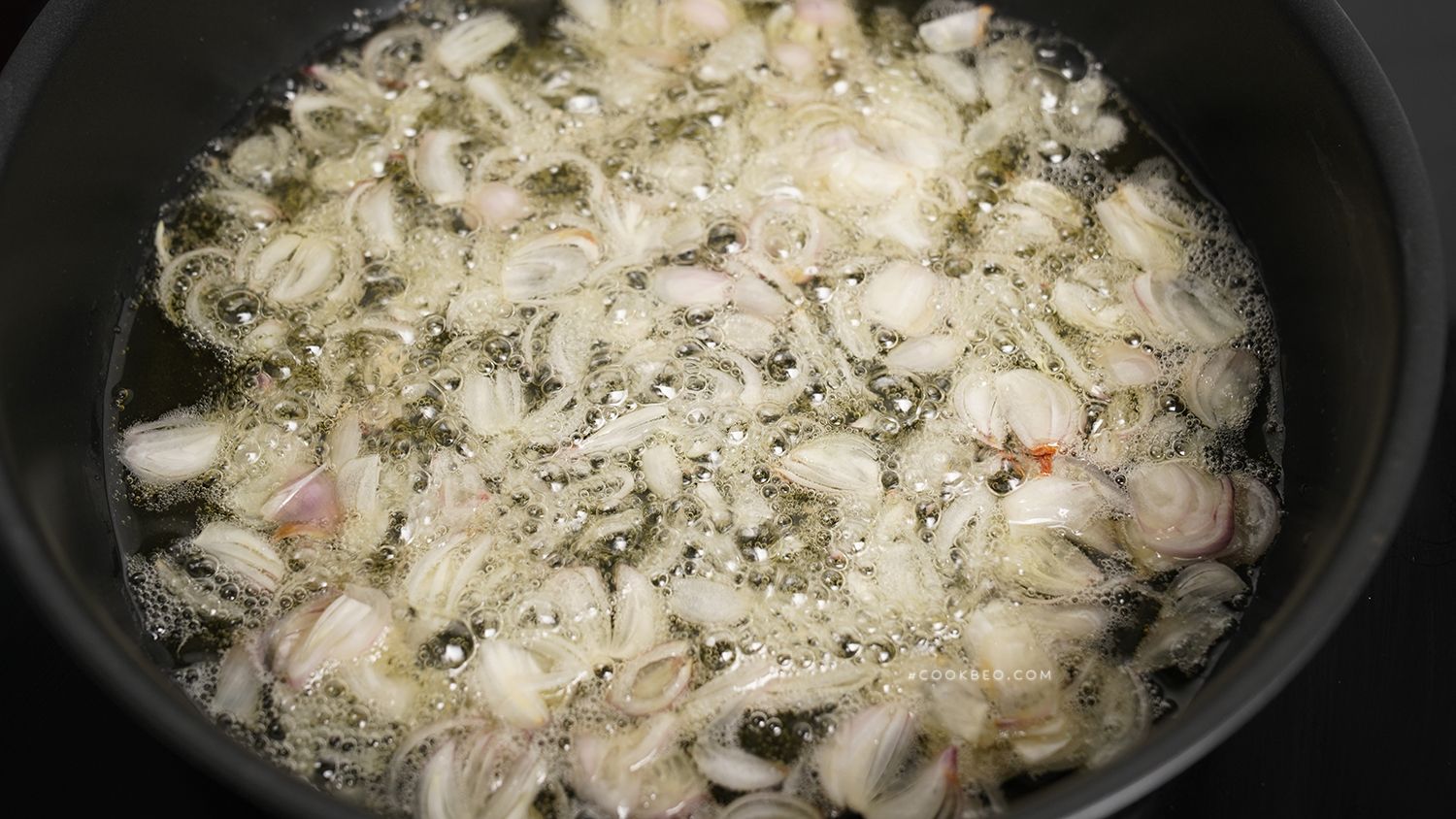
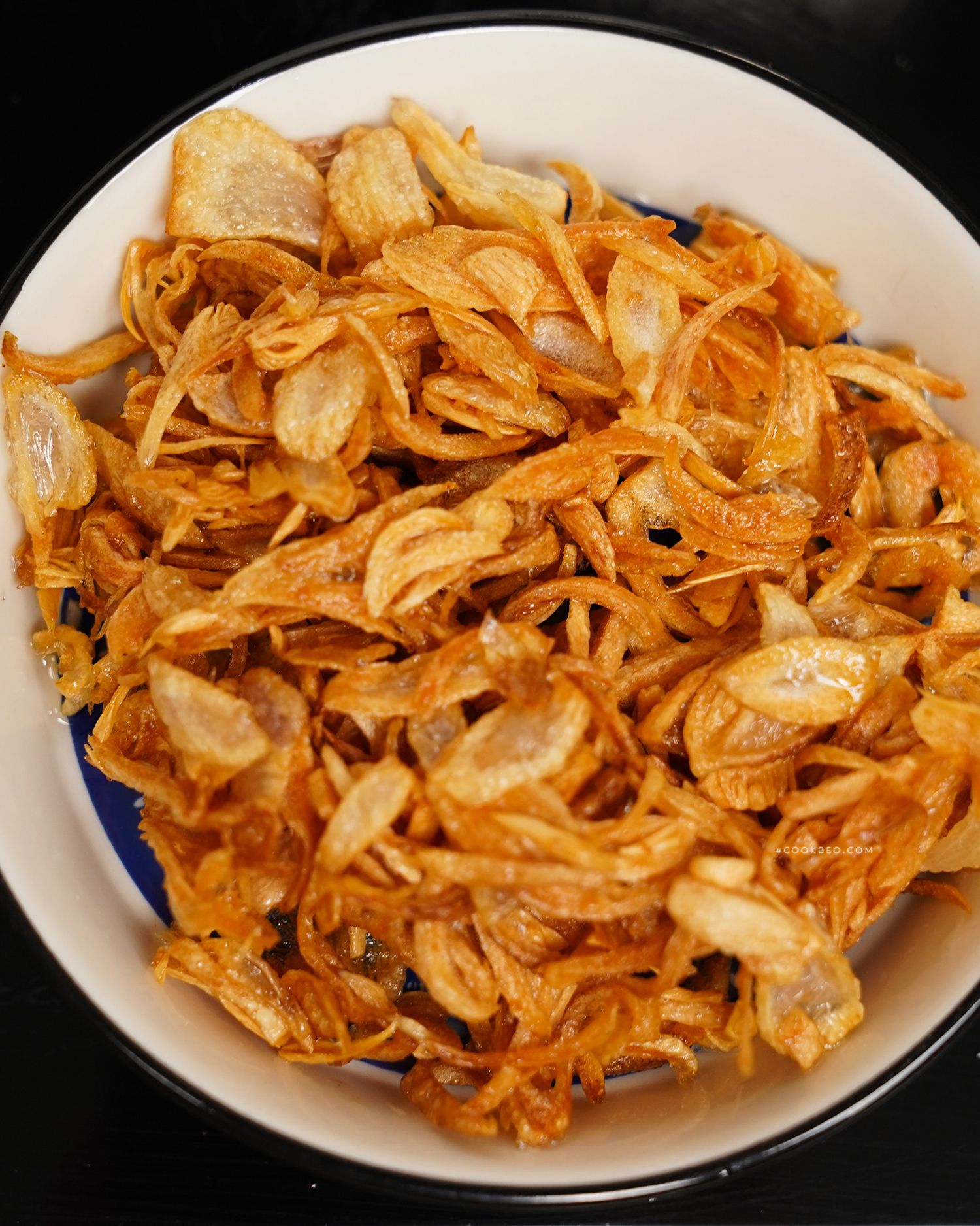
Sauté the Crab Roe
Using the same pan from frying the shallots, pour out some of the oil, then add the remaining tomatoes and sauté. You can add 1/2 teaspoon of seasoning powder to help the tomatoes soften and enhance their flavor.
When the tomatoes are soft, add the crab roe and sauté, seasoning with 1 teaspoon of fish sauce for extra flavor.
After about 1 minute, add the crab cakes from earlier along with the fried shallots. Stir gently to avoid breaking the crab cakes.
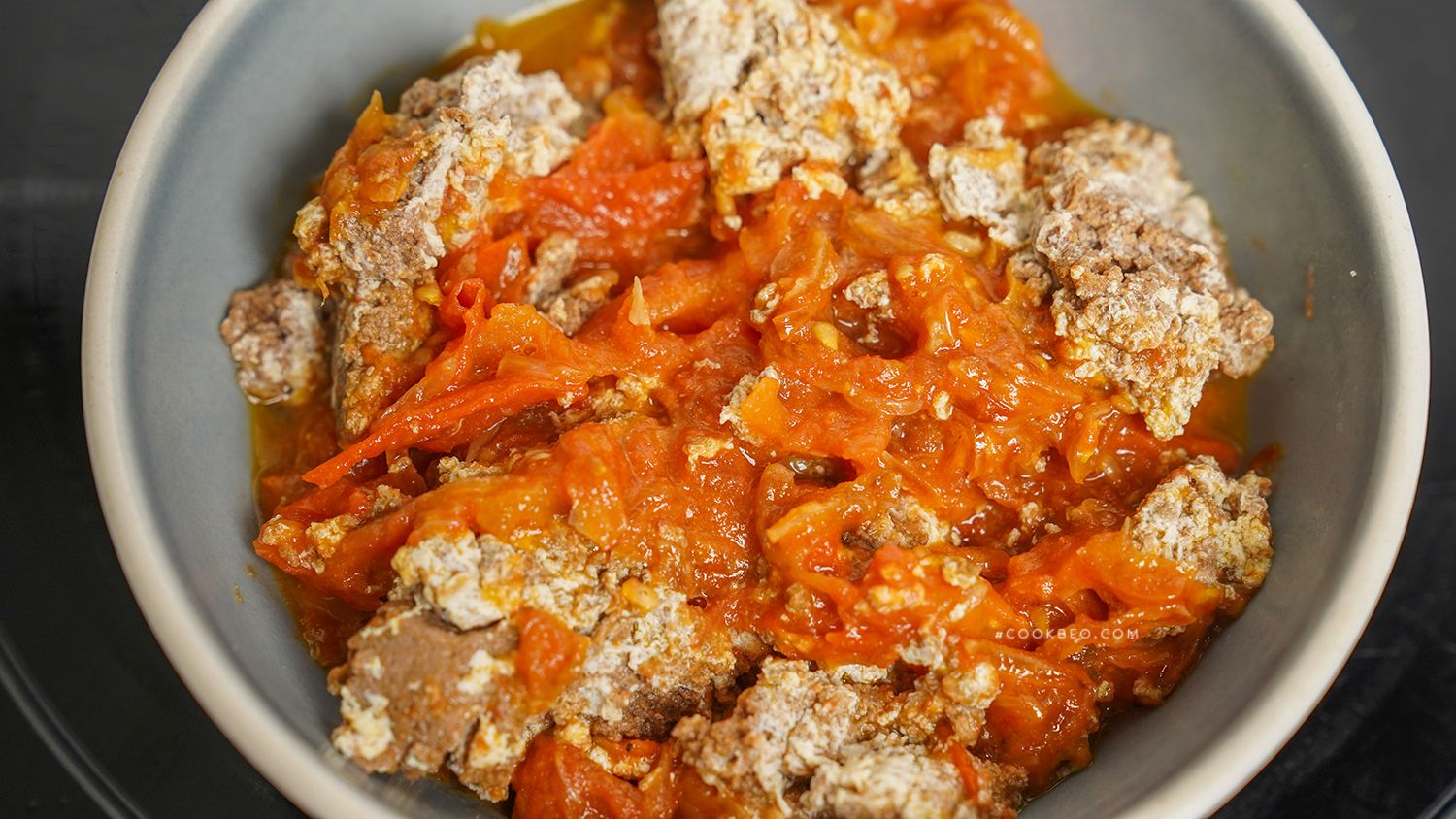
Cook the Crab Noodle Soup
Once the broth is boiling, add rice vinegar or fermented rice and season to taste. Since the soup will be served with noodles and other ingredients, you can season it a bit stronger than you would for a regular soup.
When the broth returns to a boil, briefly blanch the beef. To keep the beef tender, blanch it only until it turns light pink, then set it aside in a bowl.
Skim off any foam to keep the broth clear, as the beef will release a lot of foam. Taste the broth and adjust the seasoning if needed.
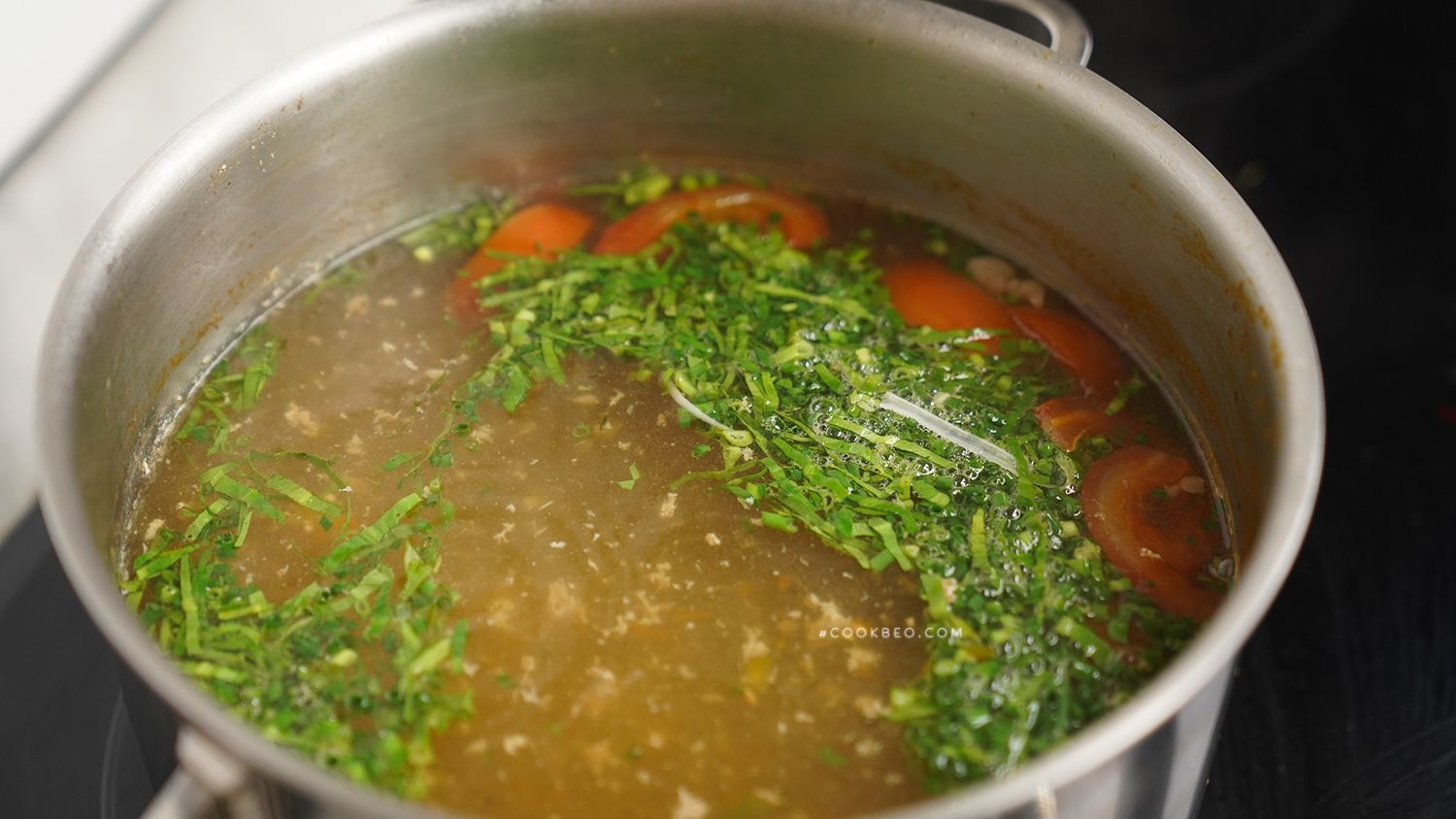
How to Enjoy
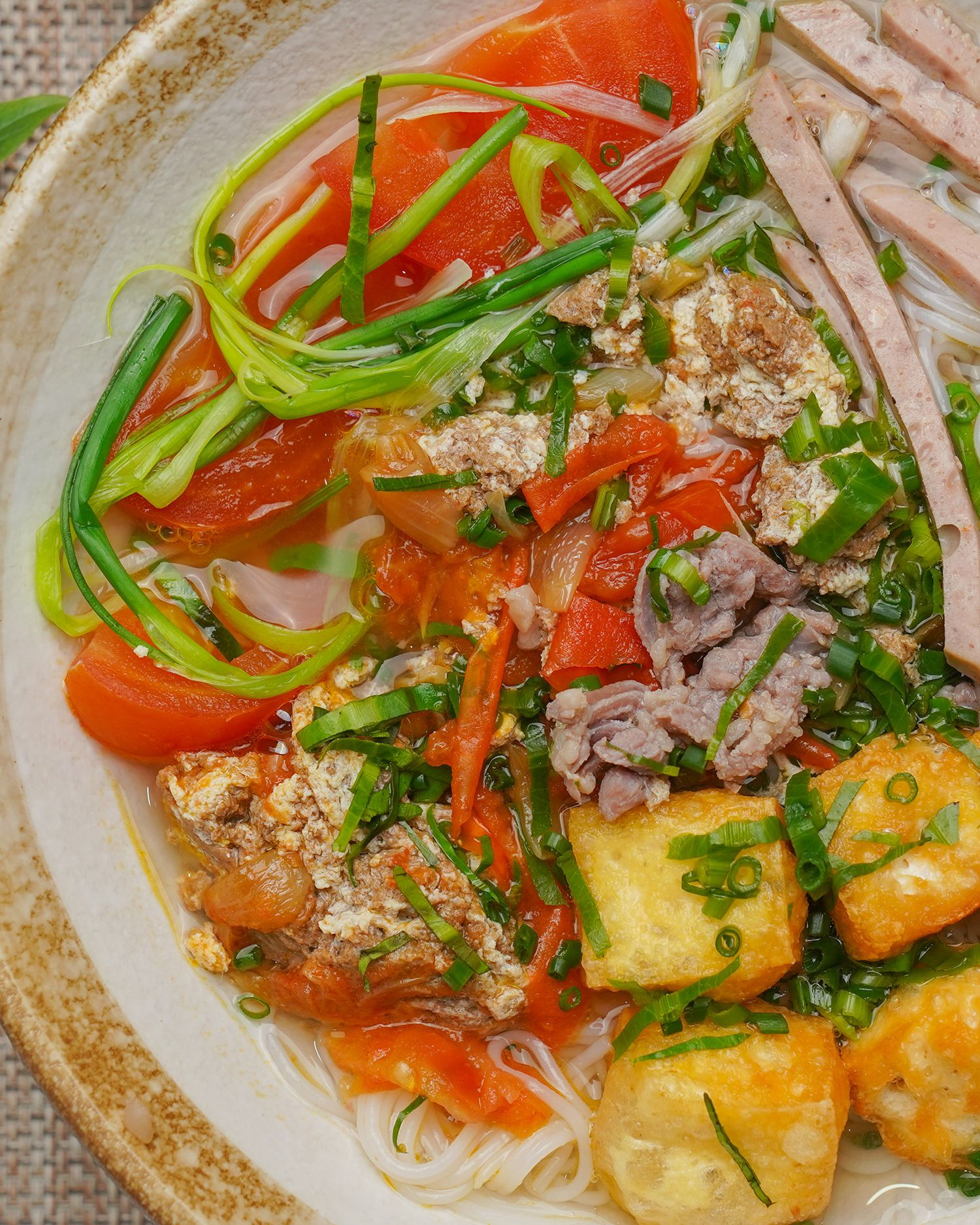
- Place the noodles in a bowl.
- Add 3-4 pieces of fried tofu, slices of beef, pork sausage, and a spoonful of sautéed crab roe to the bowl.
- Sprinkle chopped scallions and cilantro on top, then ladle the hot broth over. To keep the broth hot, scoop from the bottom of the pot.
- Add a few slices of fresh chili to the bowl for an extra kick of flavor.
Final Product Requirements
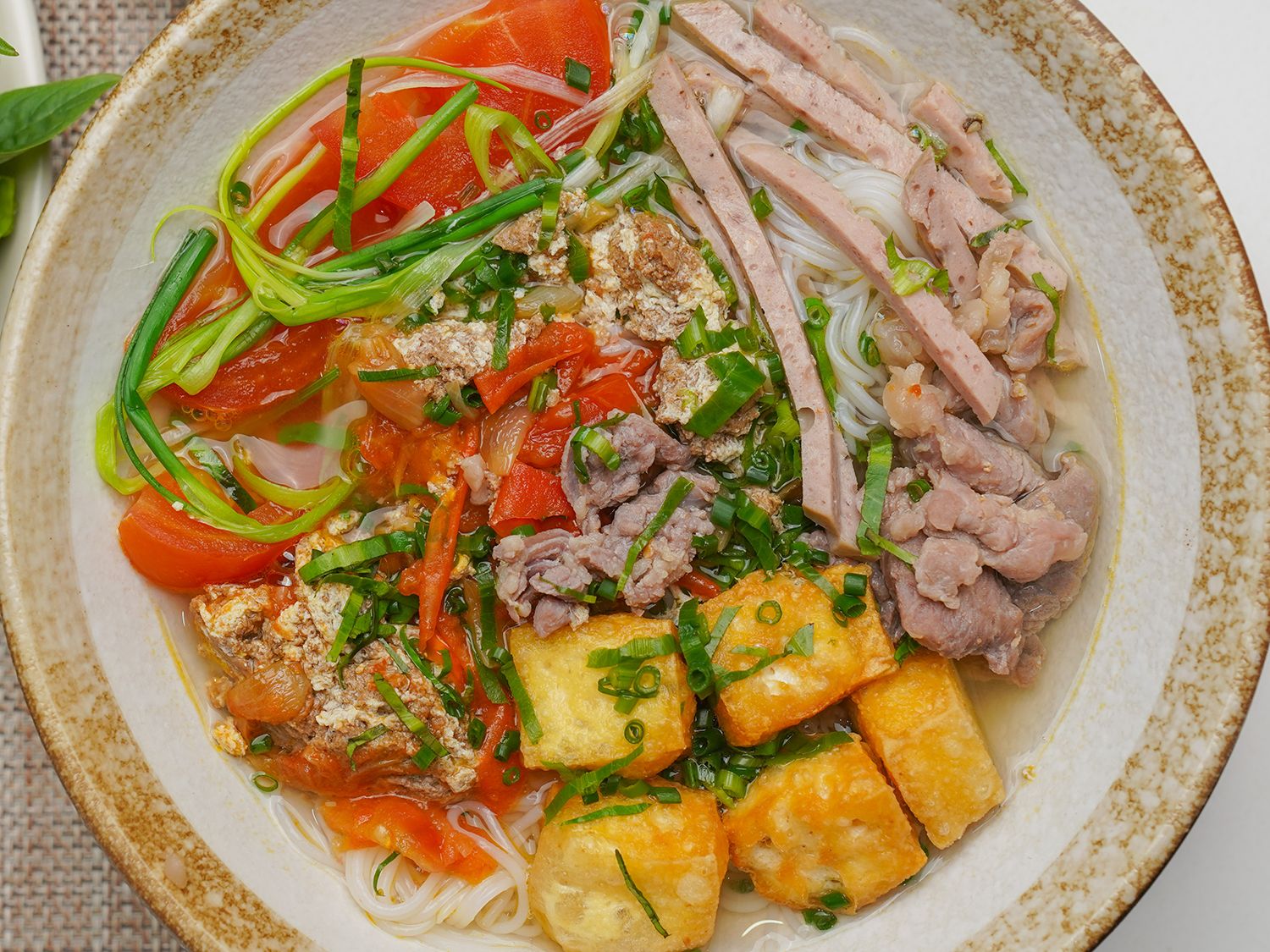
Bún Riêu Cua has a beautiful color, clear broth, and a balanced sweet and sour flavor with a pleasant freshness. Enjoy the soup with fresh herbs, and if you like, add a spoonful of garlic vinegar and a bit of spicy satay for extra flavor.
Making Bún Riêu Cua at home ensures a delicious and clean meal. The crab paste is genuine, without any tofu or other additives that you might find at restaurants. Cooking this soup for your family is a rewarding experience that any home cook would love to share.
Good luck!




